
Born in the land of deep, deep snows; created from the delicious rice and soft water the snow makes possible. Ayumasamune is a family of fresh, mellow and well-rounded saké, nationally-renowned and gaining a growing international following. A range of saké types for every occasion: as aperitifs, to enjoy with meals, or simply to sip, warm or cold.

Keeping to tradition, but embracing new ideas
When you arrive at the Ayumasamune brewery, tucked into a forested mountain valley with a river running right behind, you know it’s a special place. A 120-year-old thatched building, fronted by two ancient zelkova trees, is the main building. Since the founding of the brewery in 1875 by Hikozaemon Iiyoshi, the Iiyoshi family has lived and worked here, brewing some of the finest saké not only in Niigata, but in all of Japan. Like the buildings themselves, there’s a blend of the traditional and the new to be found in the brewing process. Slow, careful brewing using timeless methods to bring out the best flavor; new flavors like sparkling saké, making use of the traditional method used to create Champagne.
The snowy world that shapes our saké
It’s impossible to separate Ayumasamune from the snowy setting of Myoko. It’s hard to imagine sometimes: one meter of snow overnight; almost 20 meters of snow falling each year in some of the mountainous areas around us. The snowmelt feeds the rivers (where you’ll find ayu, or sweetfish, the brand namesake), and then the rice fields, creating some of Japan’s most famous rice. It also percolates down through the mountains, trickling slowly, being filtered and purified along the way. It finally emerges right here within the Ayumasamune brewery—soft and with an ideal balance of minerals, an almost perfect water for brewing saké. Put together that cold, snowy winter, the excellent source of fine rice and the almost unlimited supply of water for brewing and you can see why everything has come together for the production of some very special brews.


A key ingredient: our employees
In the past, saké was only brewed in winter, when cool temperatures allowed for the slower brewing that brings out the best flavor in the saké. And, because farmers were not working in the fields during winter, there was a labor force available for work in the kura, or brewery. In fact, these workers were sometimes called the hyakunichi, the “100-days” people, for the time they would work in the kura before returning to the fields. Today, although it’s now possible to brew all through the year, most of our brewing still is done in the cooler months. Instead of seasonal labor, though, we have instead focused on providing year-round jobs for a regular team of employees. Ayumasamune is a family-run business, and that family extends to the skilled, experienced people who are here every day, creating some of the finest saké anywhere.
A local favorite with a national following
Most of the saké brewed by Ayumasamune is consumed right here in Niigata Prefecture, and especially in the immediate area. Start with the basics, the very popular futsushu, or “regular saké.” It’s much like the Iiyoshi family: friendly, unpretentious, but something that comes from a real passion for making every level of saké something special. For local people, this is their drink of choice, often enjoyed cold for its refreshing flavor, but also served warm, particularly in the winter months. Travel to Japan’s big cities, though, and you’re likely to find the distinctive label with swimming ayu fish outside of some of the finest sushi and other restaurants. Creating many different kinds of saké, including several seasonal specialties, there’s something in the selection for even the most serious of saké connoisseurs.

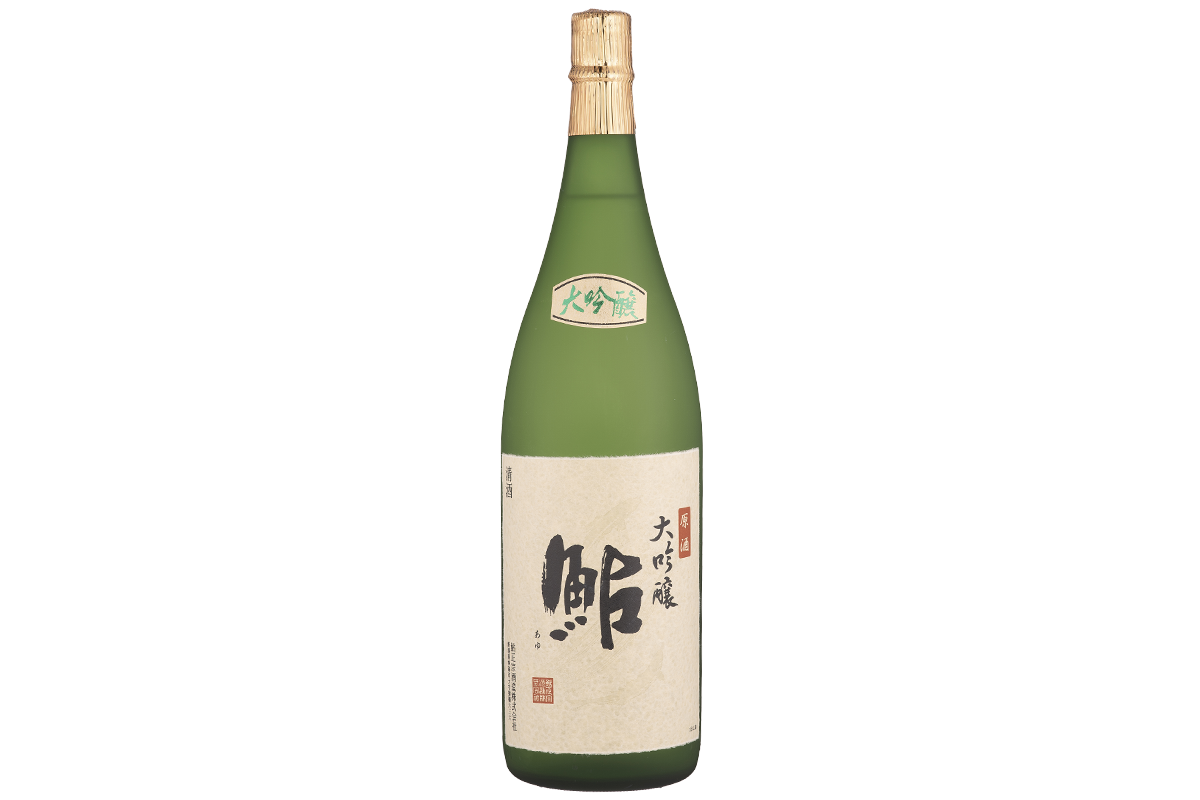
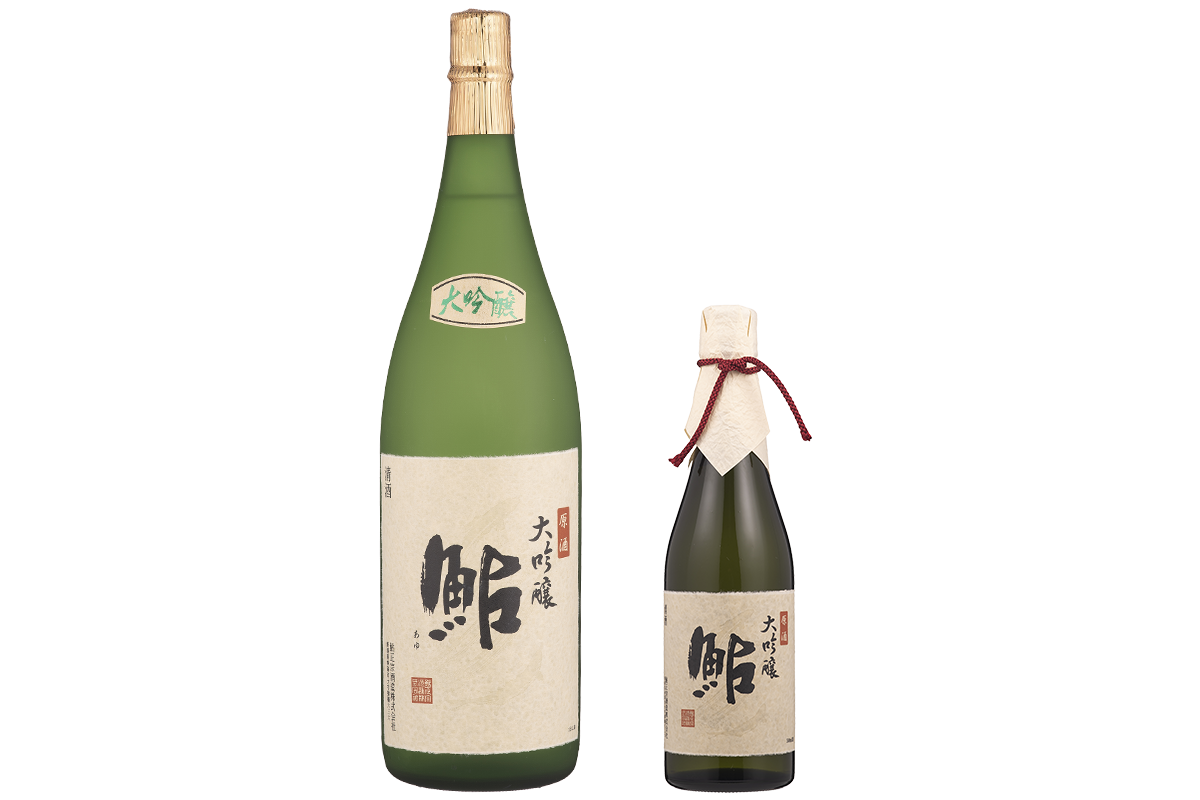
Ayu has an elegant sweetness and rich mouthfeel, made possible by highly polished Yamada Nishiki saké rice fermented slowly and a low temperature.
| Rice polished to | 40% |
|---|---|
| Alcohol content | 17% |
| Sizes | 1.8l, 500ml |
| Availability | Winter |
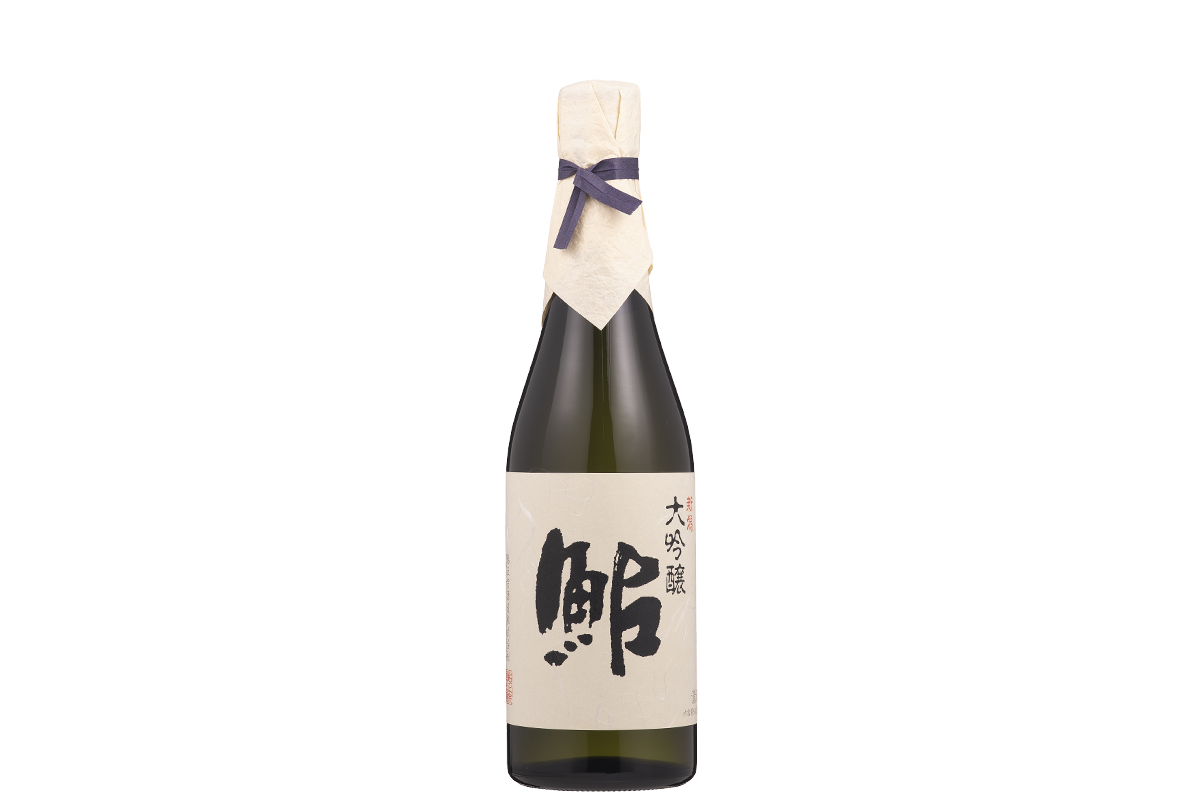
An elegant saké with a full daiginjo fragrance. A mature roundness and smooth feel.
| Rice polished to | 40% |
|---|---|
| Alcohol content | 16% |
| Sizes | 500ml |
| Availability | Year-round |
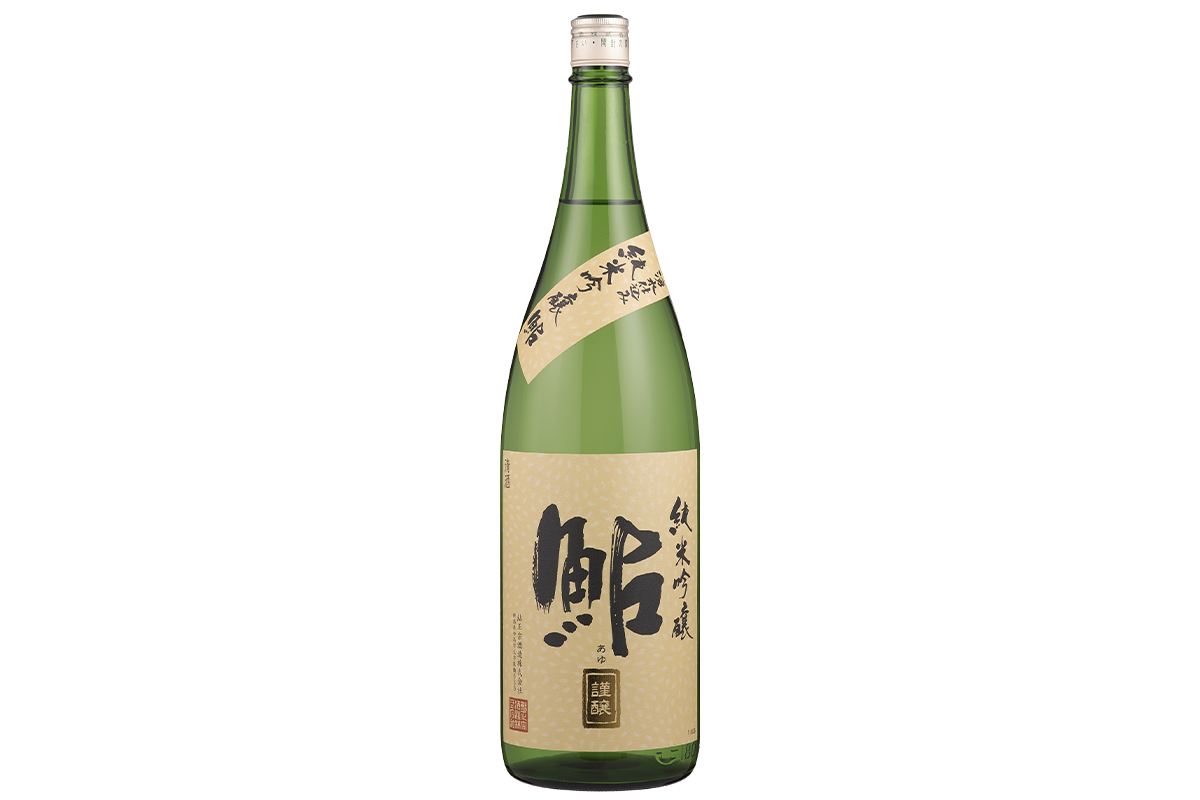
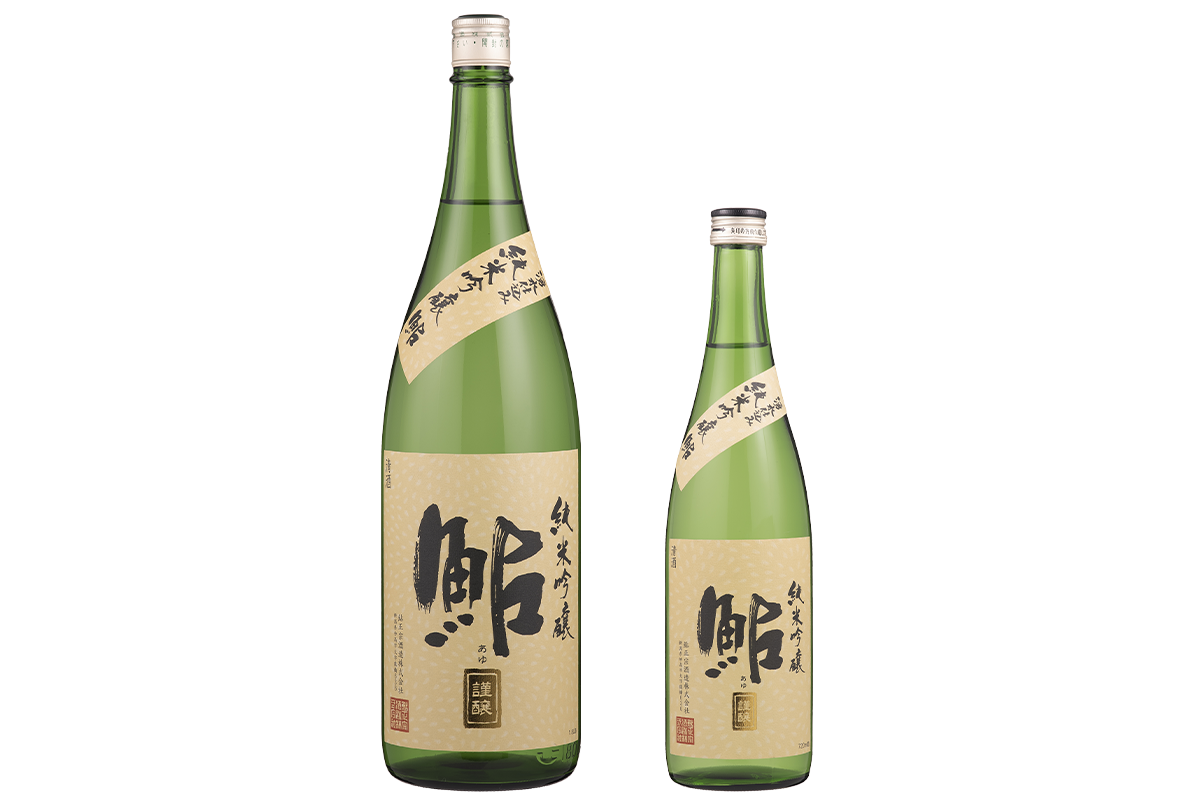
Fragrant, with a mild and elegant taste. A refreshing start, with a deep, lingering aftertaste.
| Rice polished to | 50% |
|---|---|
| Alcohol content | 15% |
| Sizes | 1.8l, 720ml |
| Availability | Year-round |
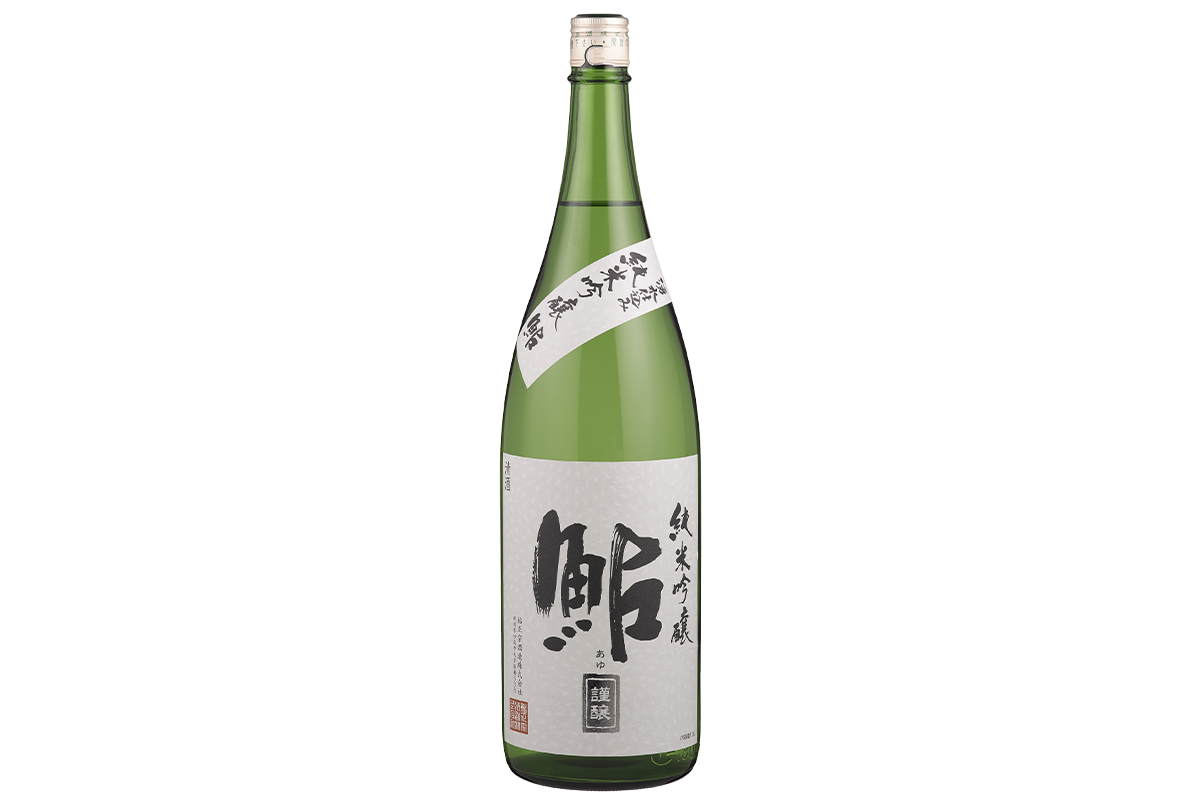
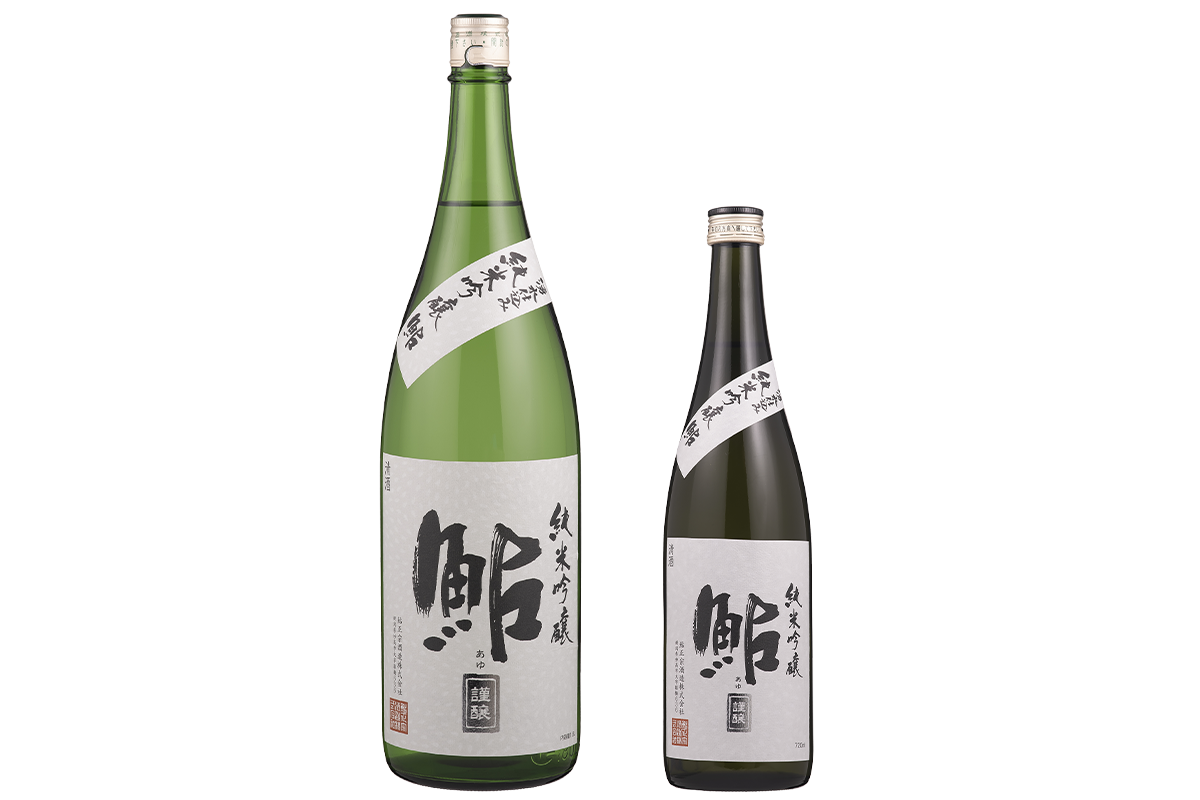
A gentle fragrance and a careful balance of umami, tartness, sweetness and bitterness, creating a clean flavor that goes very well with meat dishes.
| Rice polished to | 58% |
|---|---|
| Alcohol content | 15% |
| Sizes | 1.8l, 720ml |
| Availability | Year-round |
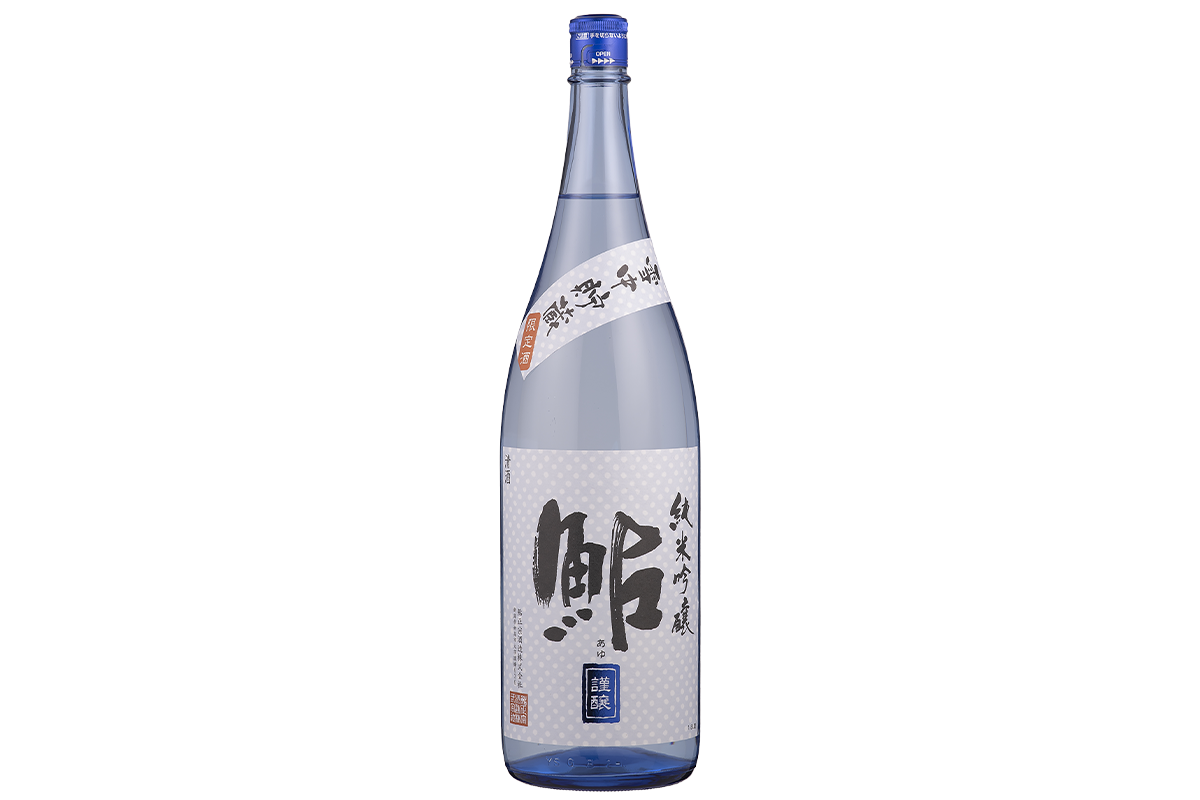
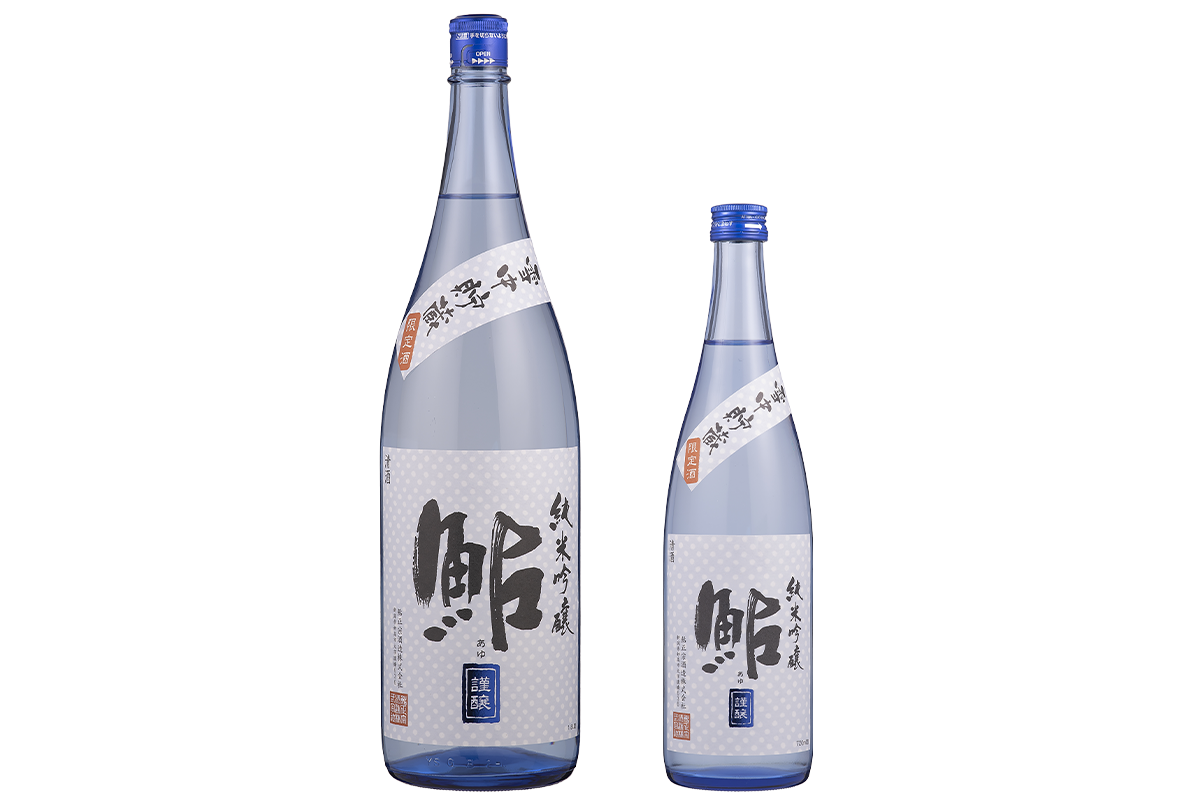
A Junmai ginjo that has been stored in natural snow for an extended period. A harmonious blend of sweetness and tart notes that spreads in the mouth, leaving a refreshing and pleasant aftertaste.
| Rice polished to | 50% |
|---|---|
| Alcohol content | 16% |
| Sizes | 1.8l, 720ml |
| Availability | Summer |
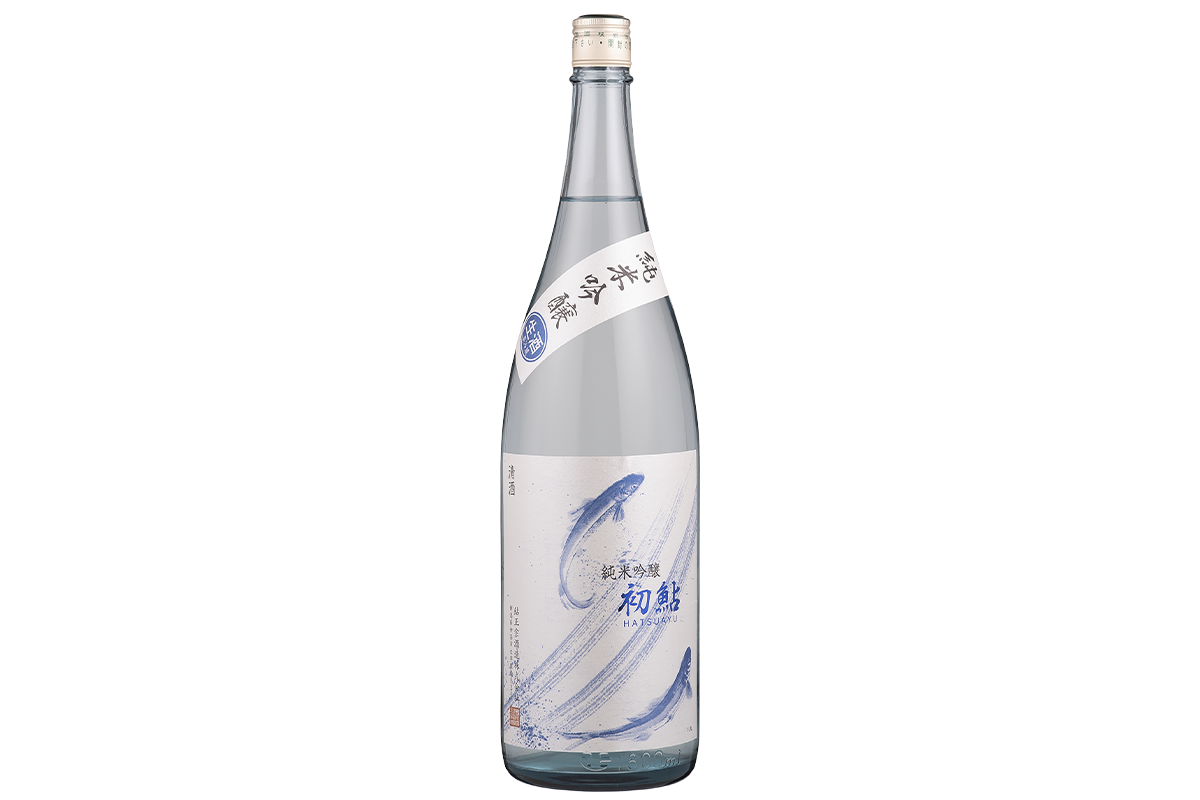
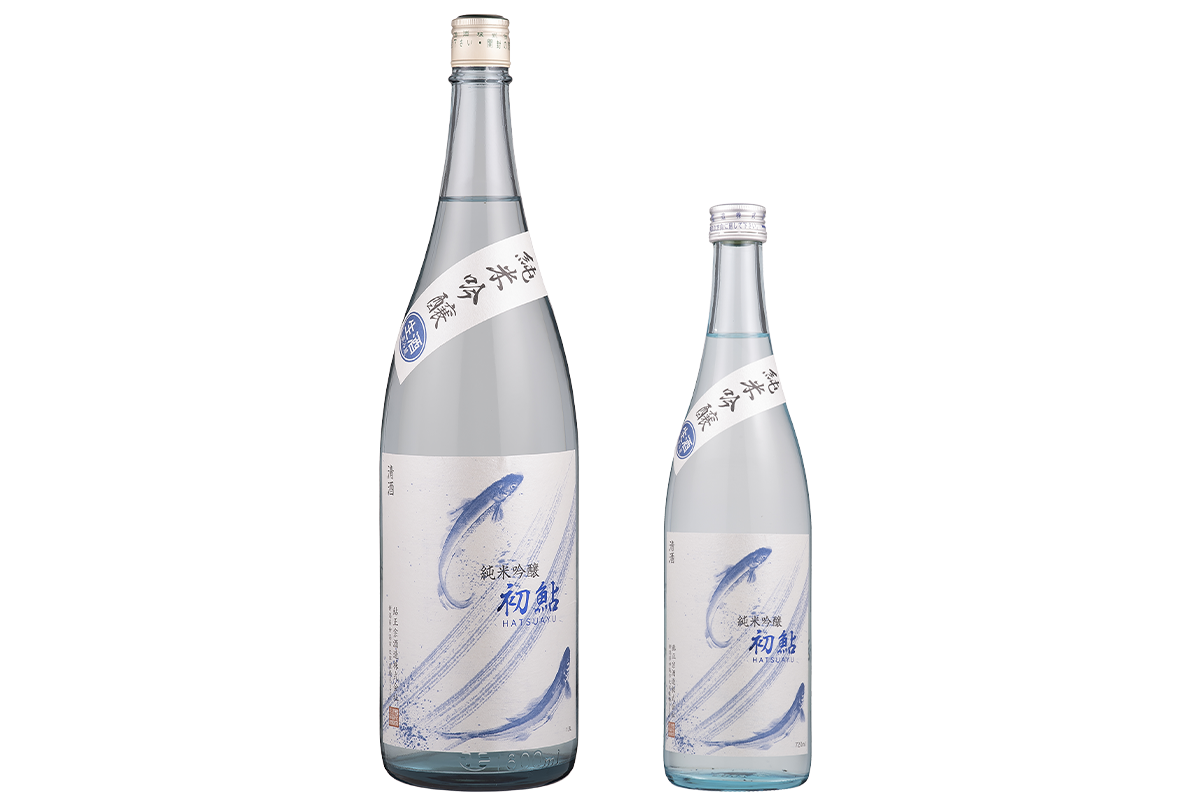
The first taste reveals an amazing fragrance, gentle sweetness and a refreshingly acid touch. Refreshing aftertaste.
| Rice polished to | 50% |
|---|---|
| Alcohol content | 16% |
| Sizes | 1.8l, 720ml |
| Availability | Winter |
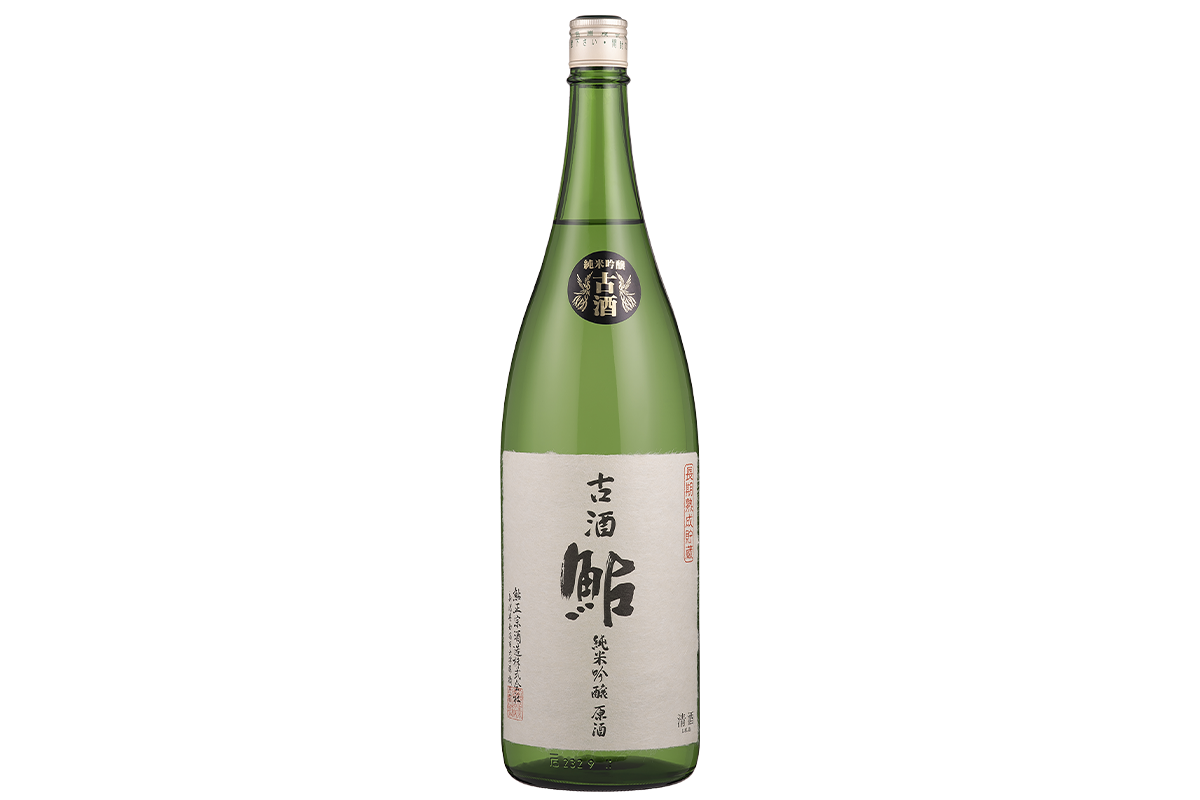
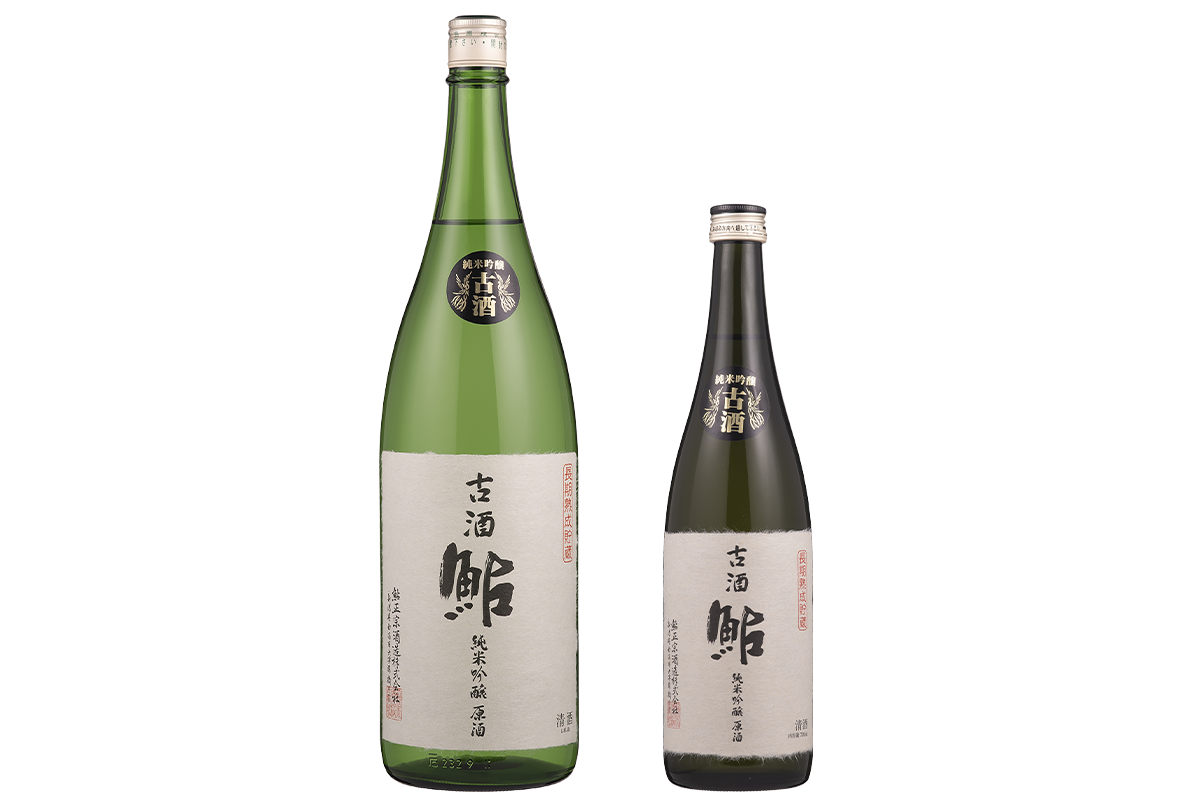
A matured saké with a mild, elegant and rounded flavor. Features the deep flavor of a well-aged saké.
| Rice polished to | 50% |
|---|---|
| Alcohol content | 17% |
| Sizes | 1.8l, 720ml |
| Availability | Winter |
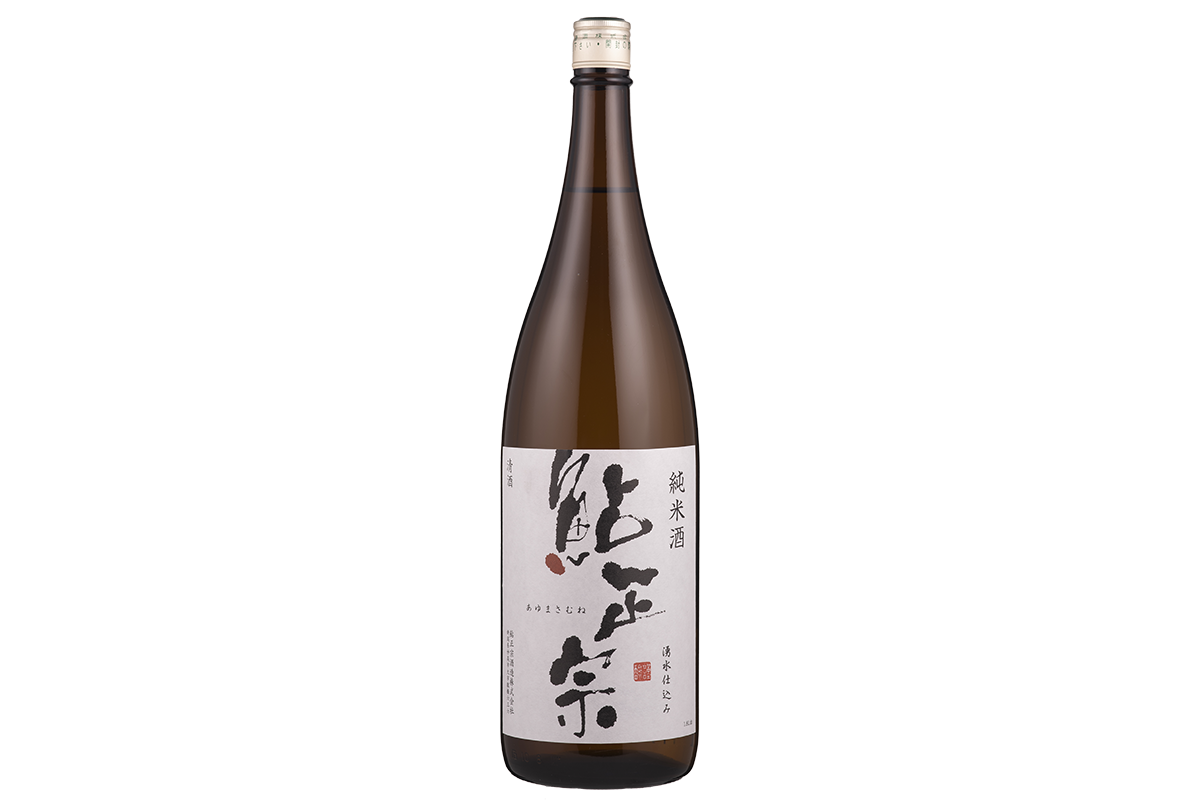
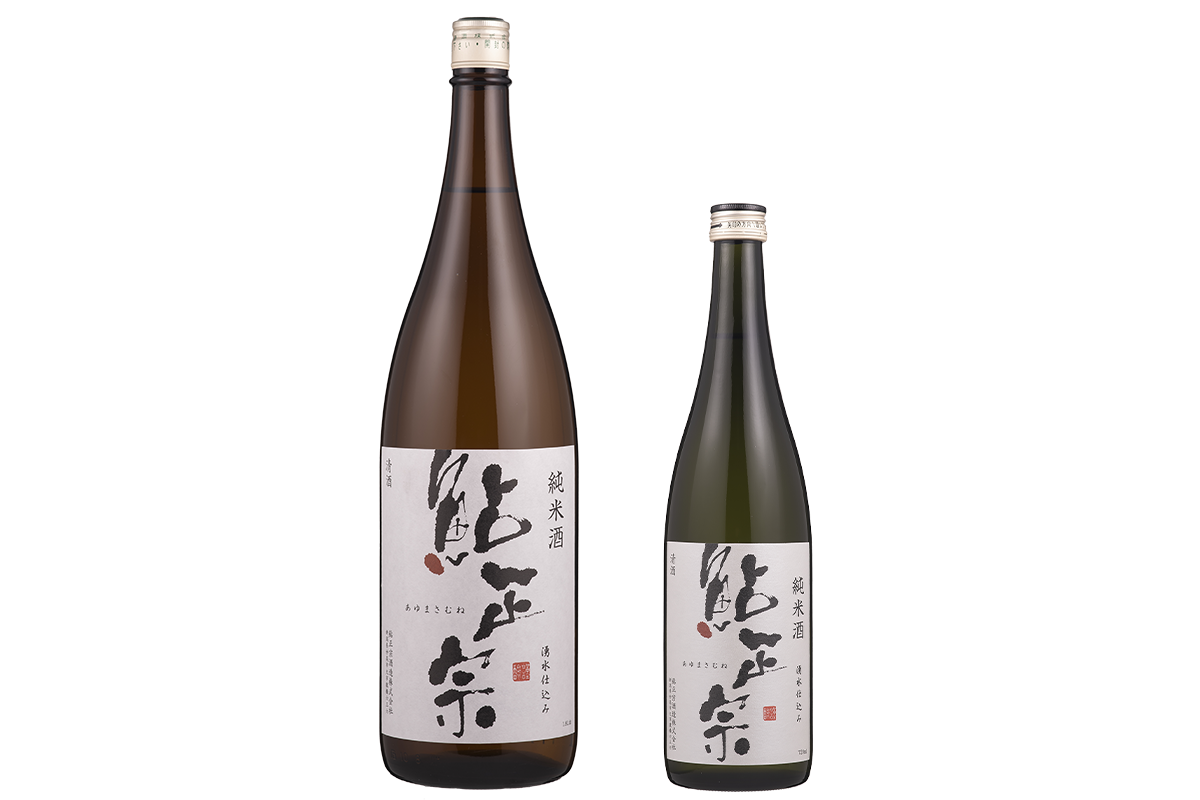
A full-bodied yet mild flavor that brings out a delightful rice note. A careful balance of umami, tartness, sweetness and bitterness.
| Rice polished to | 65% |
|---|---|
| Alcohol content | 15% |
| Sizes | 1.8l, 720ml |
| Availability | Year-round |
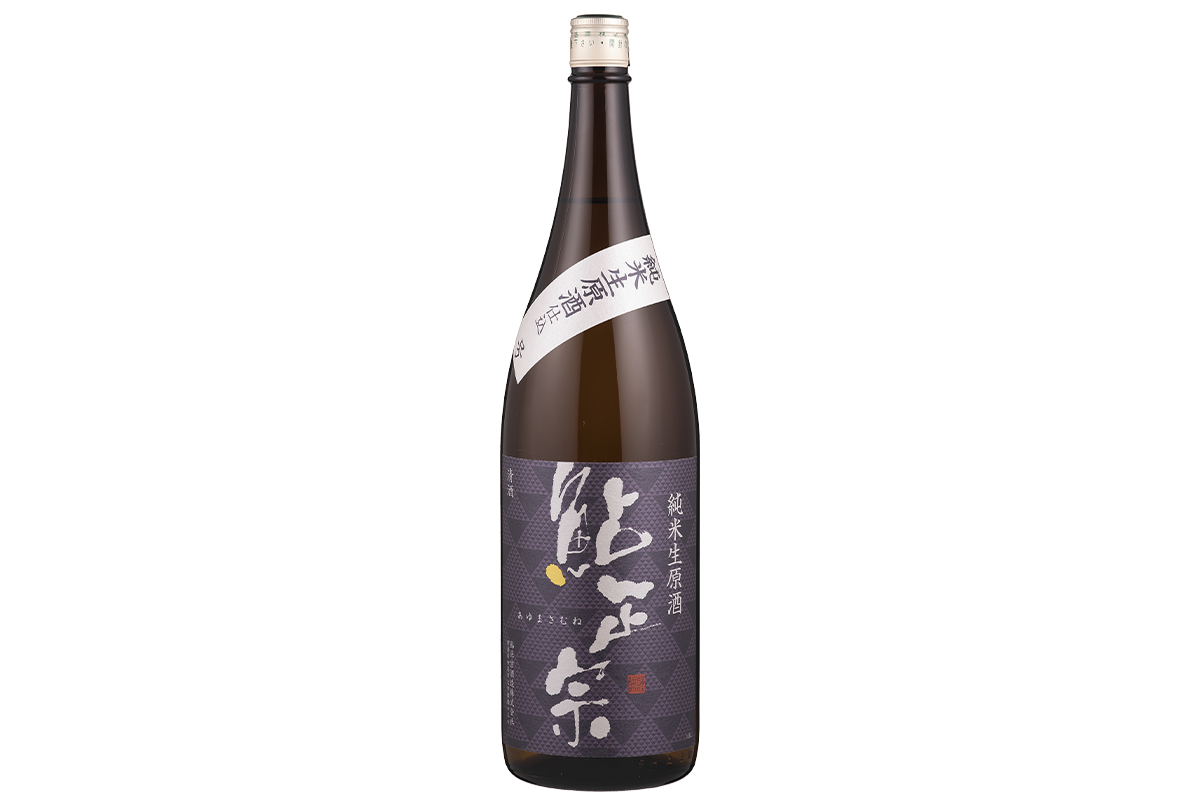
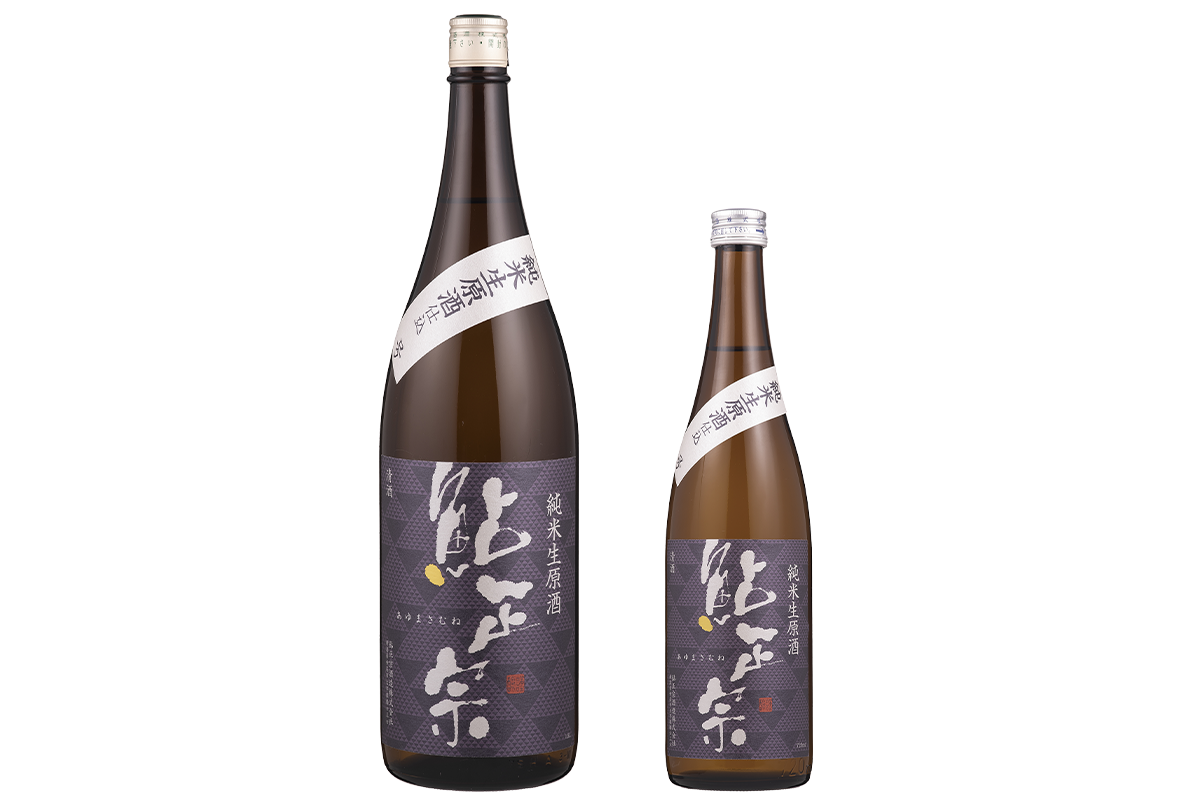
An unpasteurized, all-rice saké with the youthfulness of just having been brewed. Freshness, and the mellow but full flavor of a namazaké.
| Rice polished to | 65% |
|---|---|
| Alcohol content | 17% |
| Sizes | 1.8l, 720ml |
| Availability | Winter |
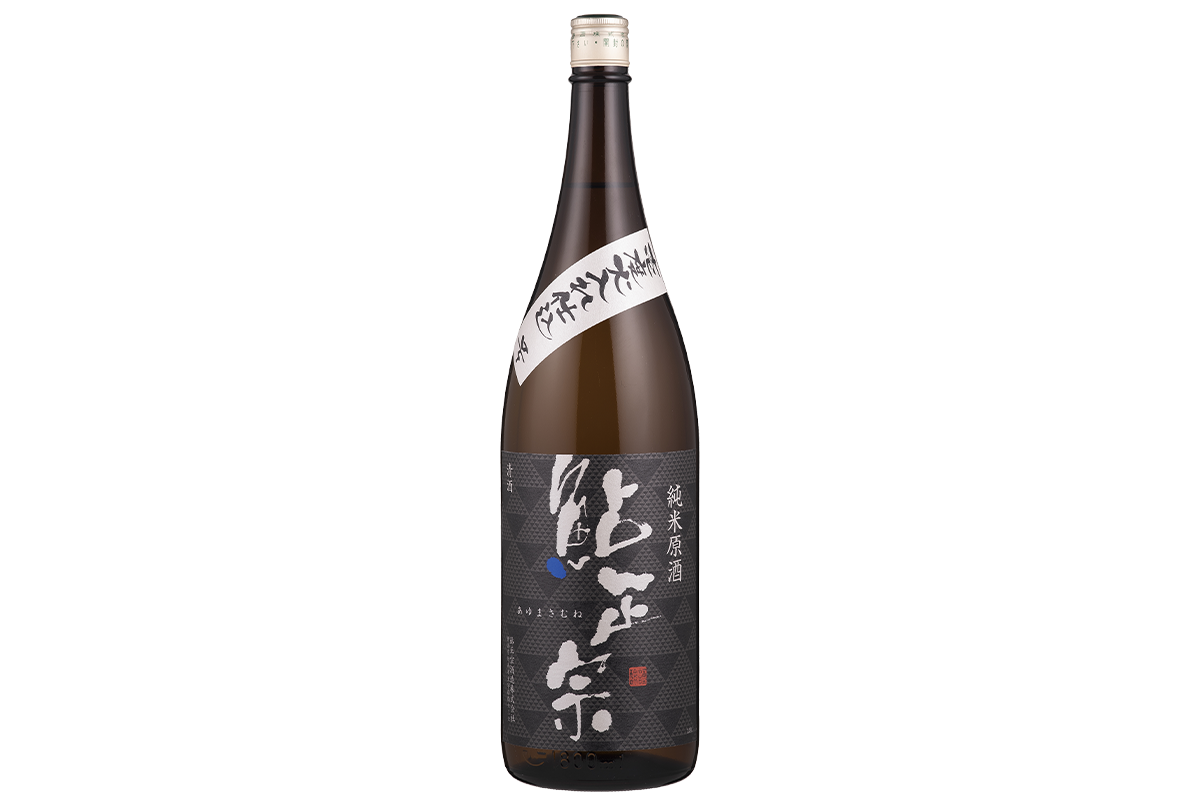
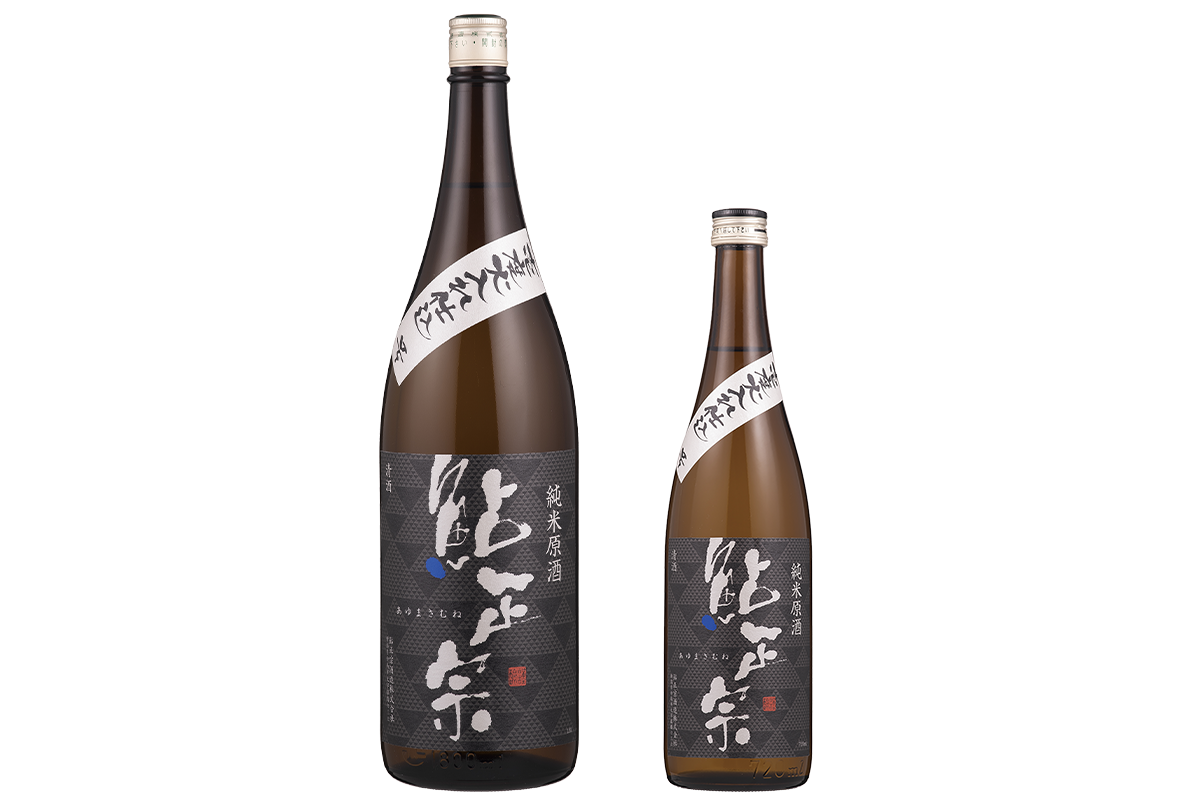
A gentle aroma, and a full rice flavor. Although it has the strength of a genshu, it goes down smoothly.
| Rice polished to | 65% |
|---|---|
| Alcohol content | 17% |
| Sizes | 1.8l, 720ml |
| Availability | Spring through Autumn |
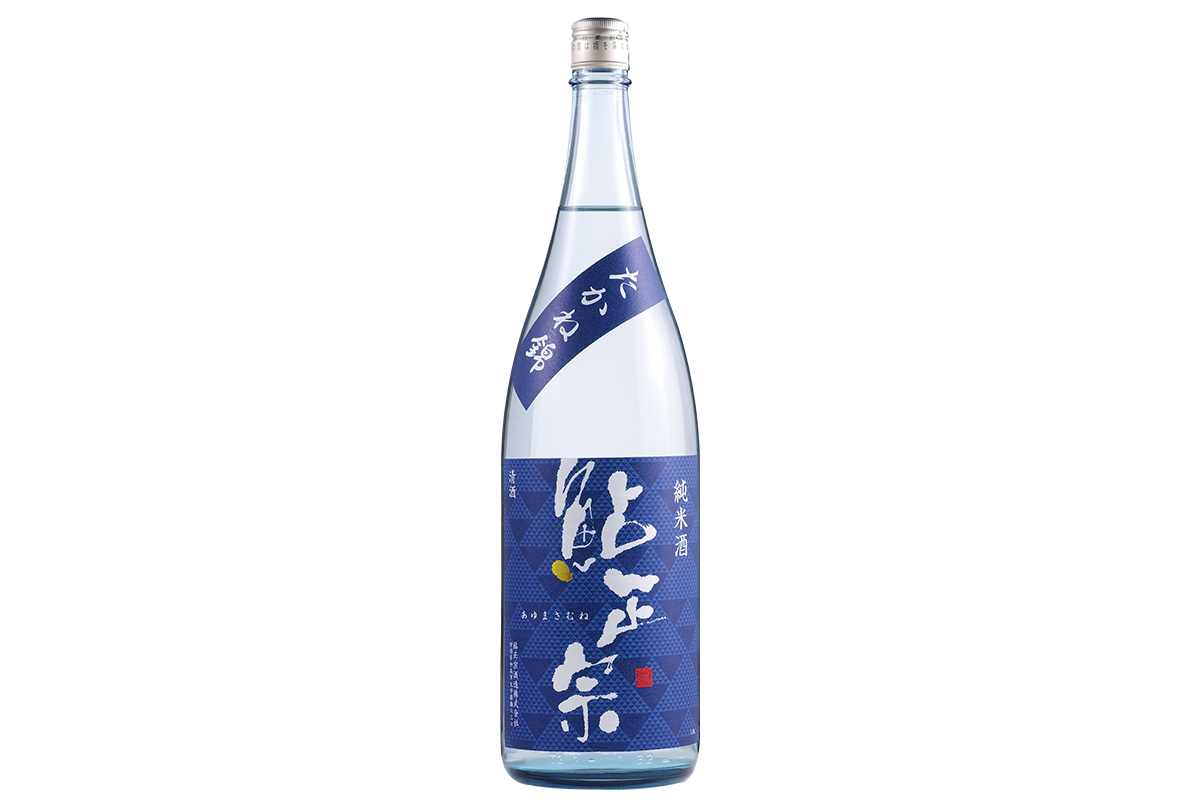
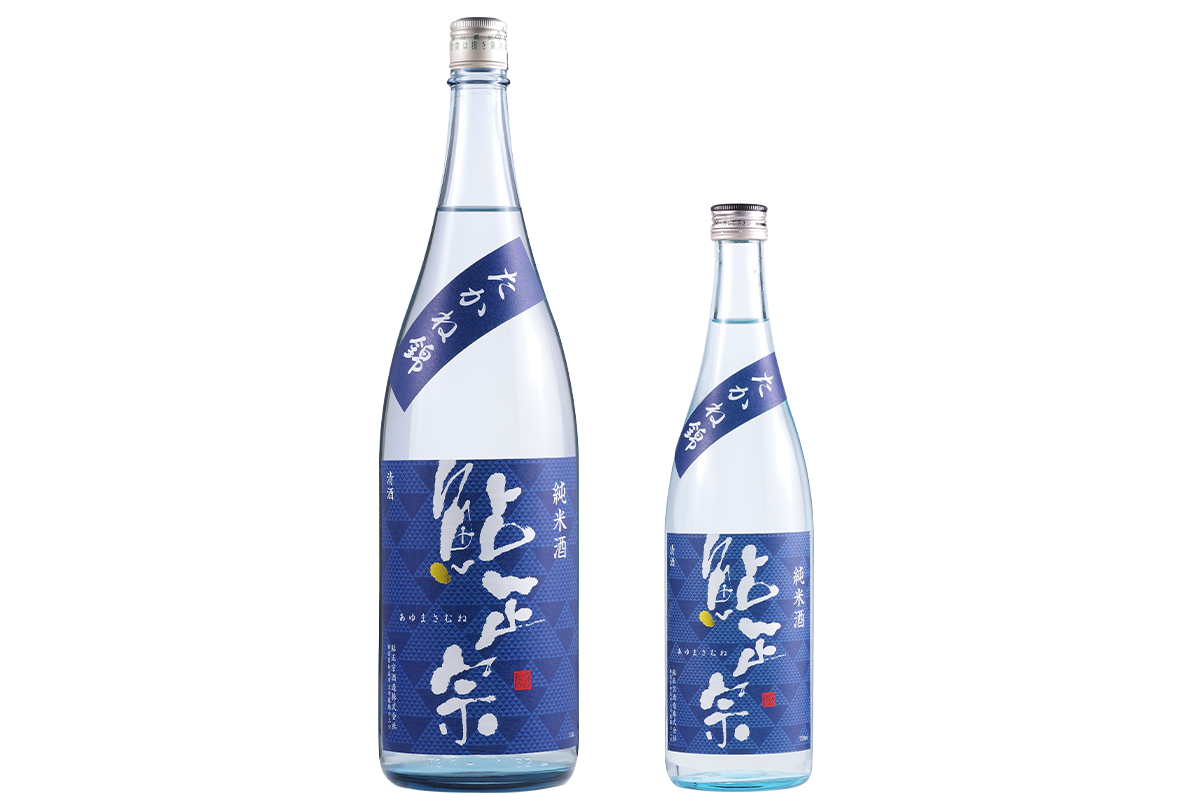
A pure-rice sake made with Takanenishiki saké brewing rice. It has a rich flavor, but also a delightful finish.
| Rice polished to | 65% |
|---|---|
| Alcohol content | 16% |
| Sizes | 1.8l, 720ml |
| Availability | Summer |
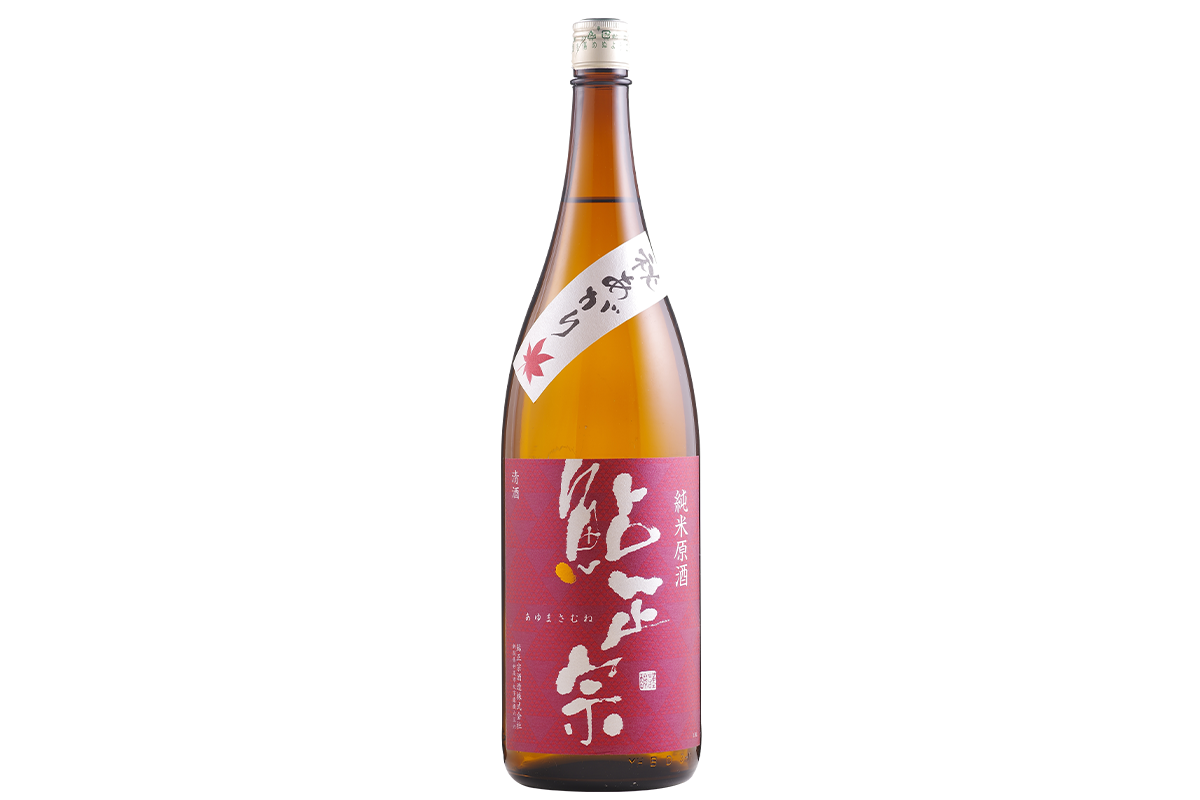
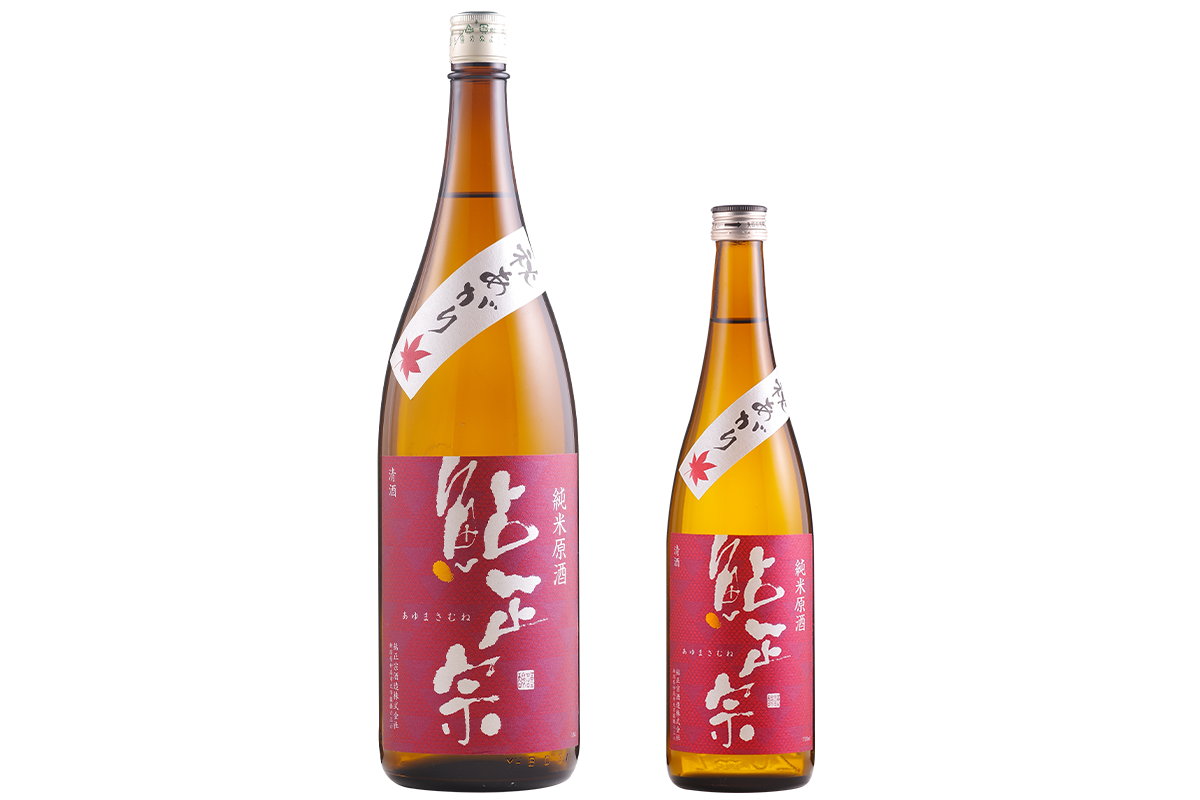
After resting for the summer, Akiagari has a rich taste high in umami. It has a flavor perfect for the autumn (aki) of its name.
| Rice polished to | 65% |
|---|---|
| Alcohol content | 17% |
| Sizes | 1.8l, 720ml |
| Availability | Autumn |


Has a distinct, rich flavor that spreads in the mouth with the first sip. Characterized by its soft, smooth taste.
| Rice polished to | 58% |
|---|---|
| Alcohol content | 15% |
| Sizes | 1.8l, 720ml, 300ml |
| Availability | Year-round |
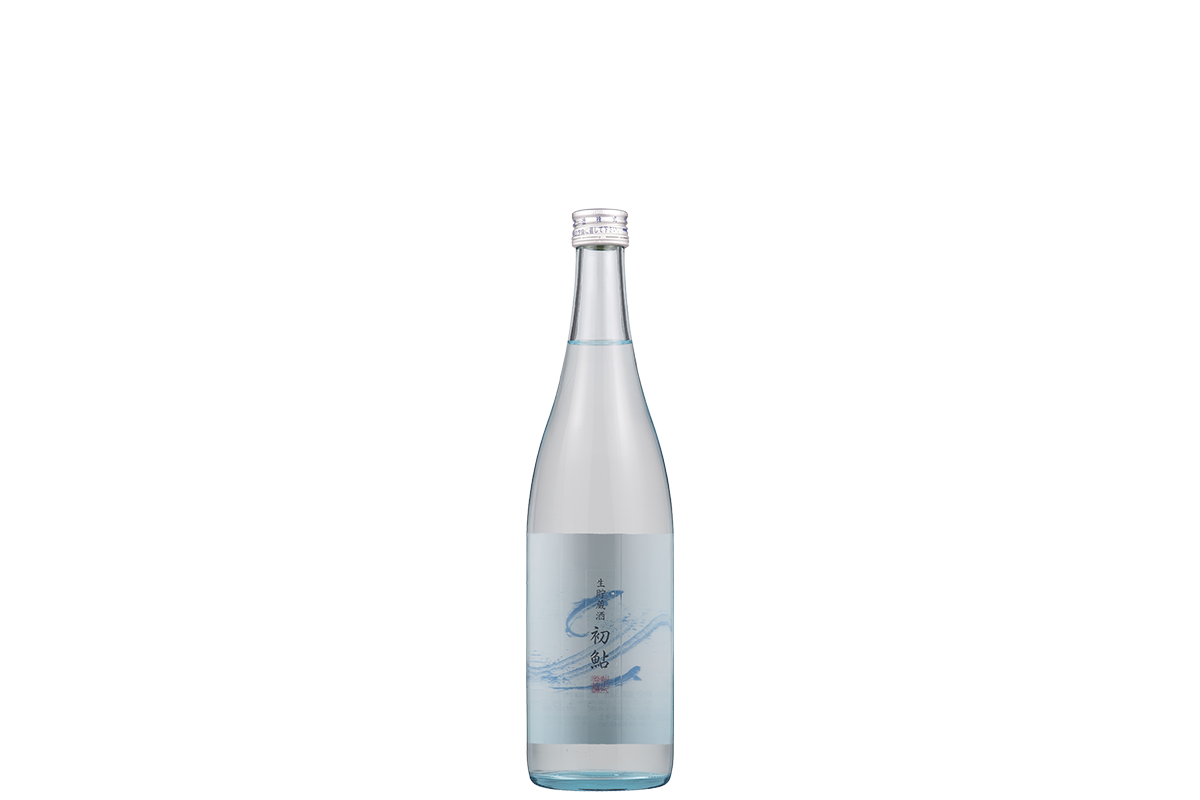
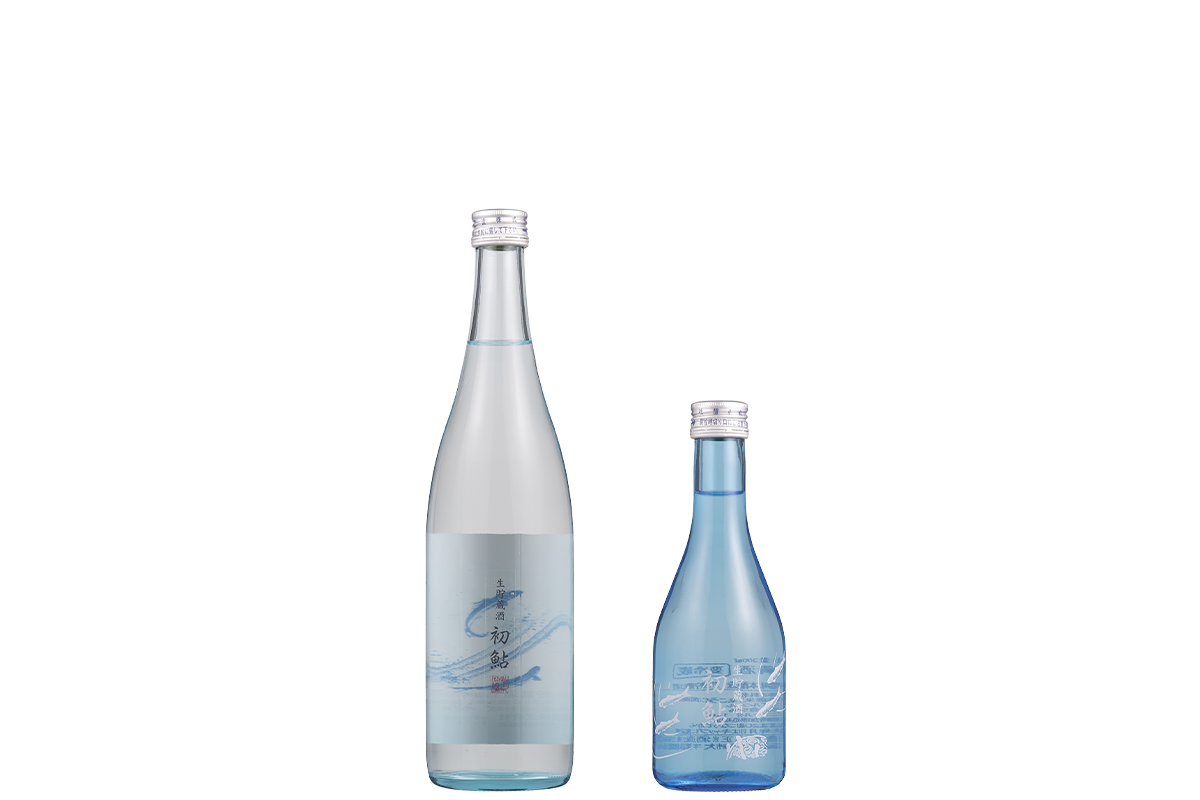
This refreshing nama (unpasteurized) saké has a moderately tart and lightly sweet flavor with a smooth feel in the mouth and throat.
| Rice polished to | 58% |
|---|---|
| Alcohol content | 14% |
| Sizes | 720ml, 300ml |
| Availability | Year-round |


Beloved as a local favorite in Niigata, it has a soft, clean mouthfeel and a mellow, lingering aftertaste.
| Rice polished to | 70% |
|---|---|
| Alcohol content | 15% |
| Sizes | 1.8l, 720ml, 300ml, 180ml, cup |
| Availability | Year-round |
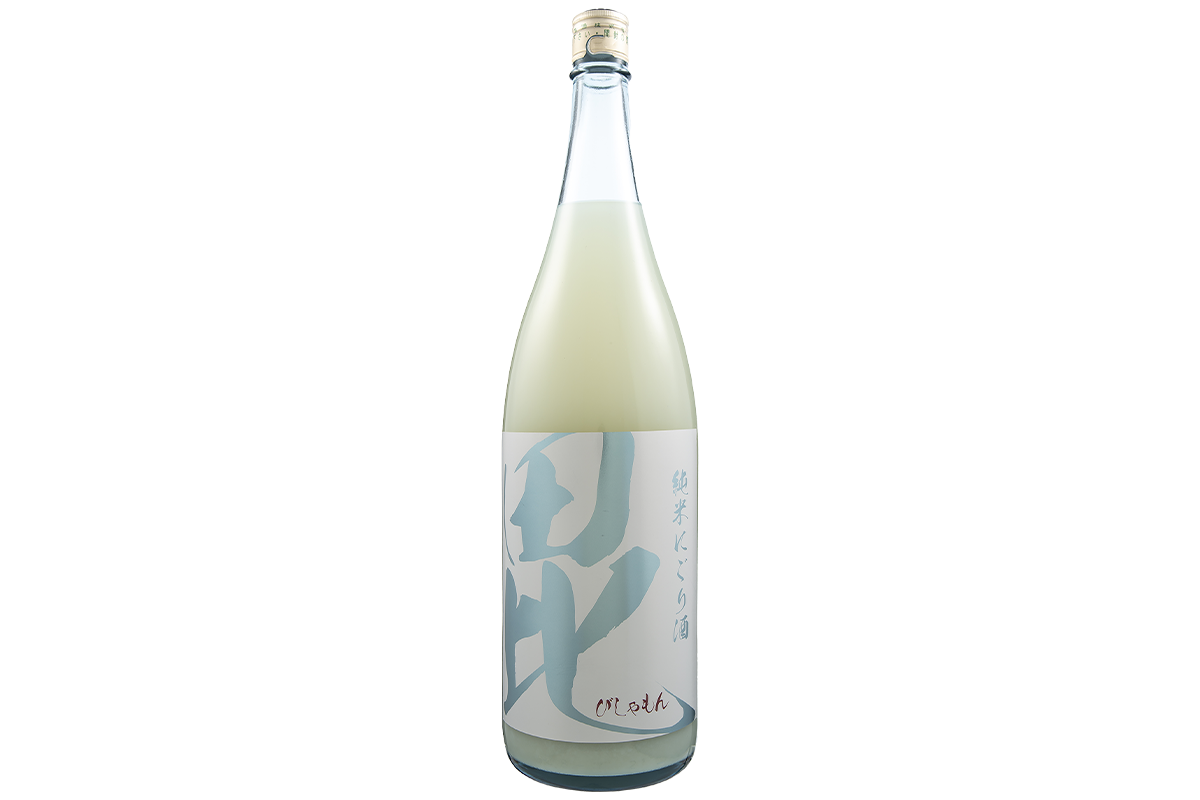
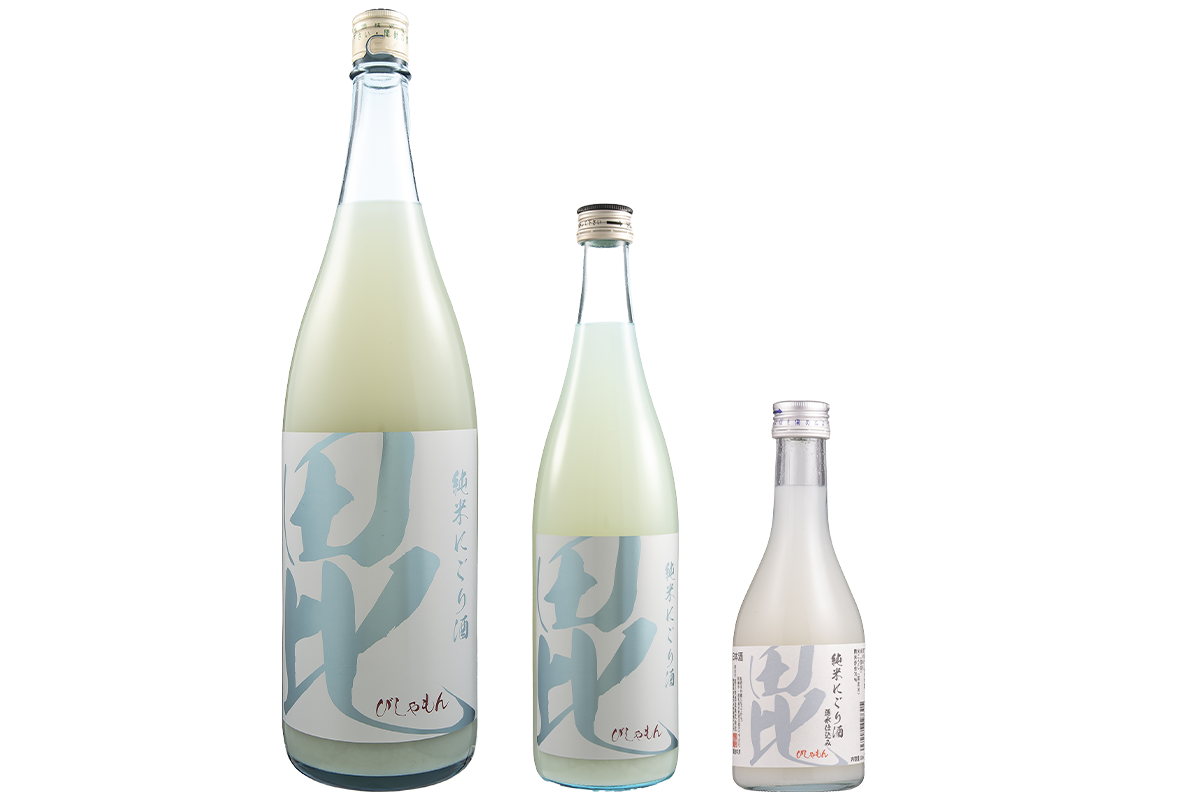
A soft sweetness and a texture like gentle snow, rich but with a touch of the tartness of a nigori.
| Rice polished to | 70% |
|---|---|
| Alcohol content | 15% |
| Sizes | 1.8l, 720ml, 300ml |
| Availability | Year-round |
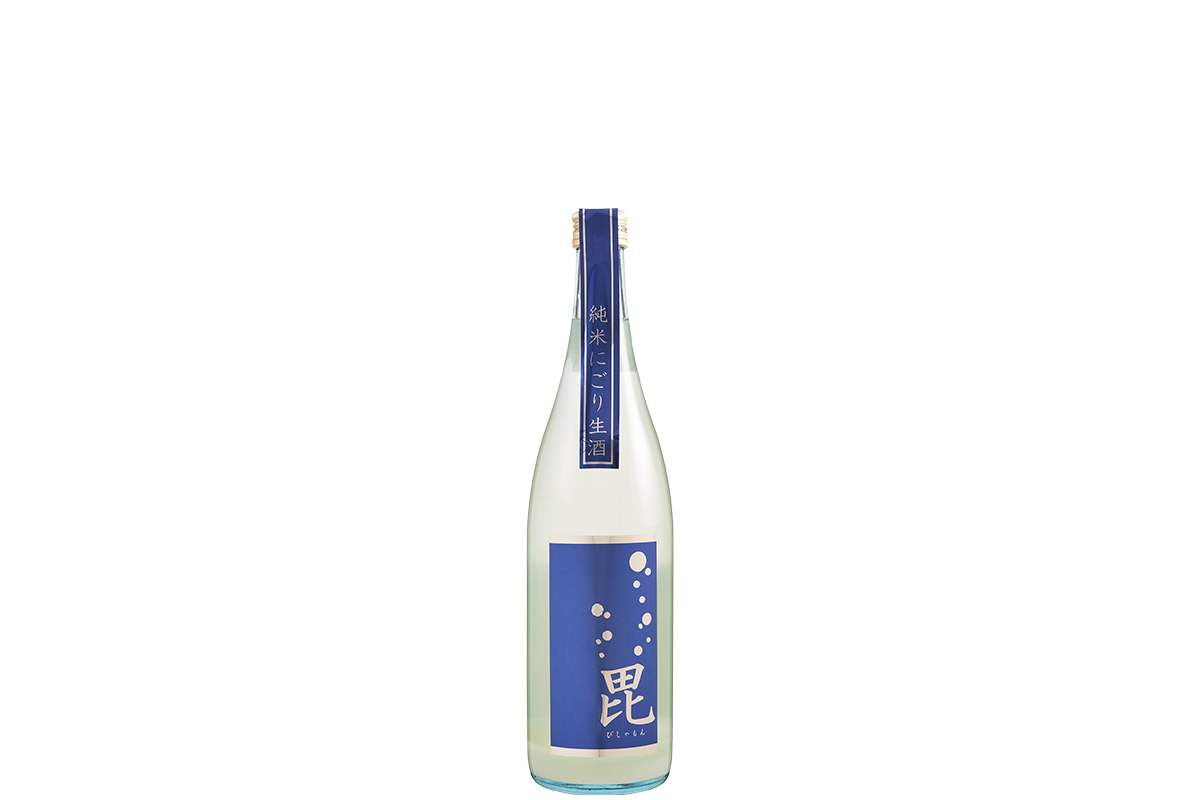
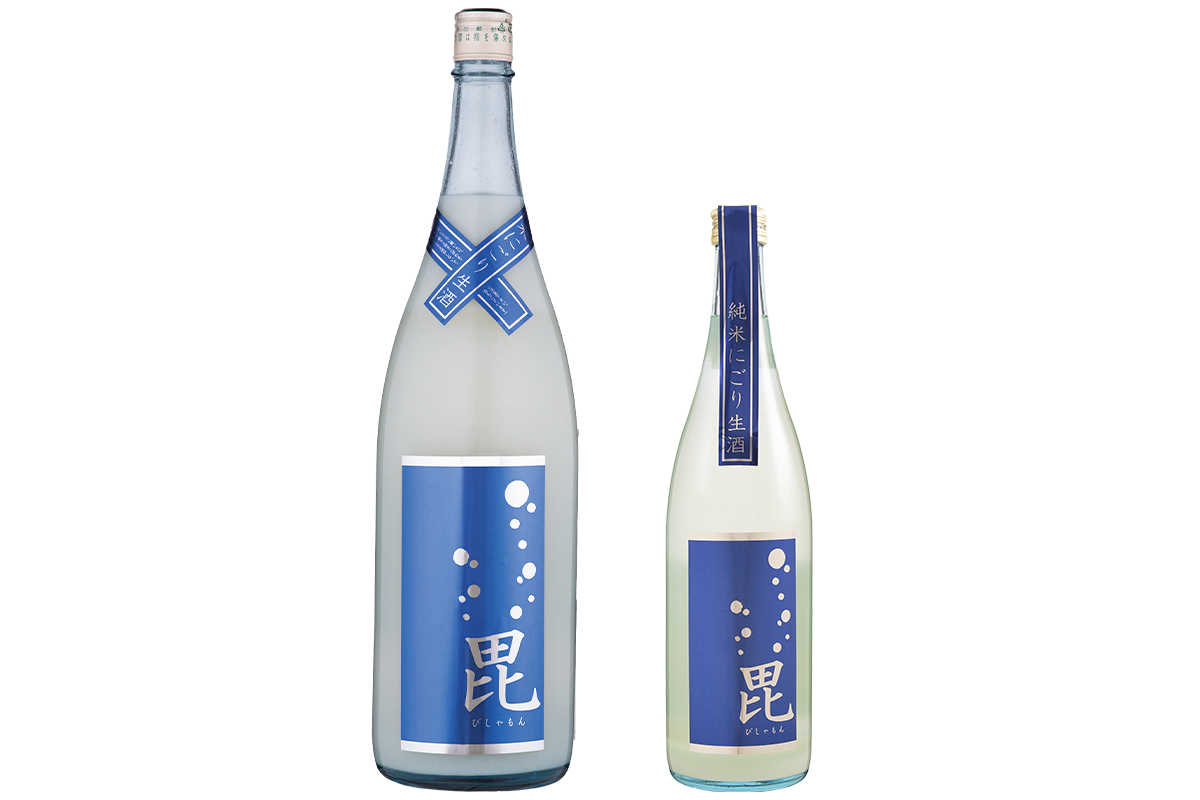
Lightly cloudy, with a soft sweet and fruity flavor. An unpasteurized nigori with a light, foamy feel.
| Rice polished to | 70% |
|---|---|
| Alcohol content | 17% |
| Sizes | 1.8l(by order), 720ml |
| Availability | Winter |
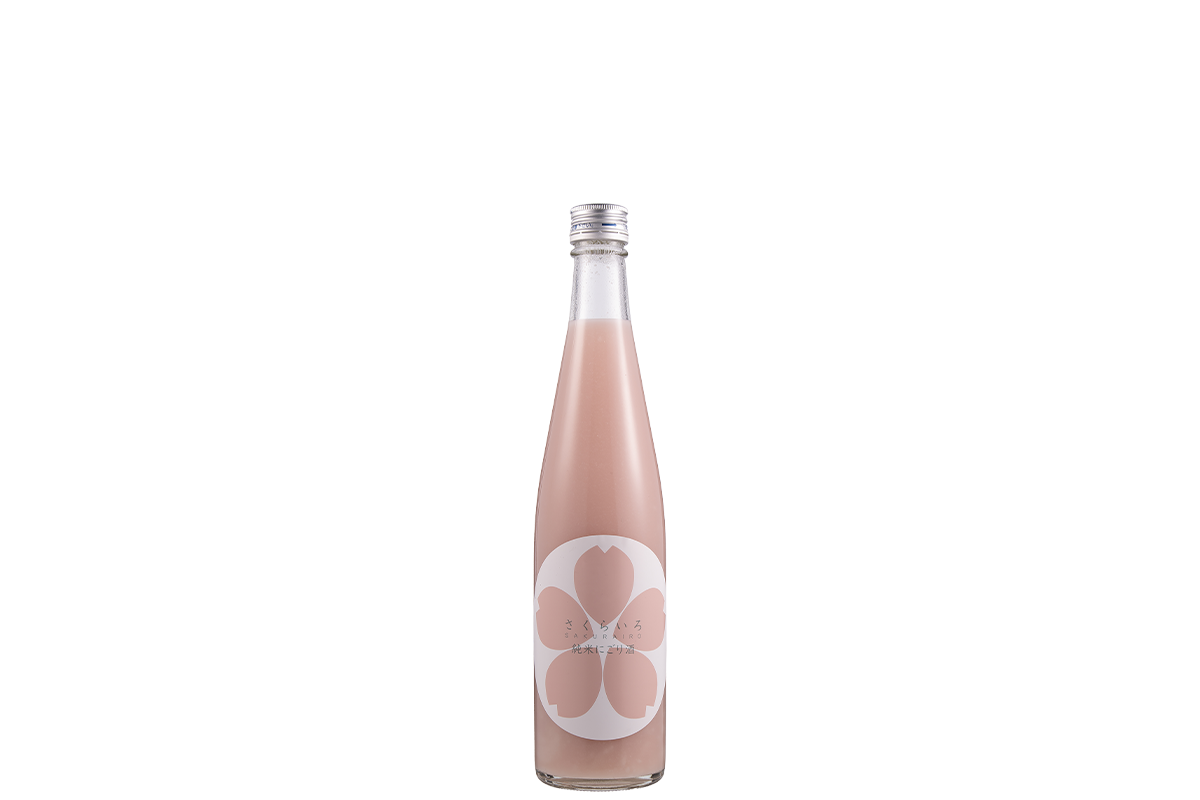
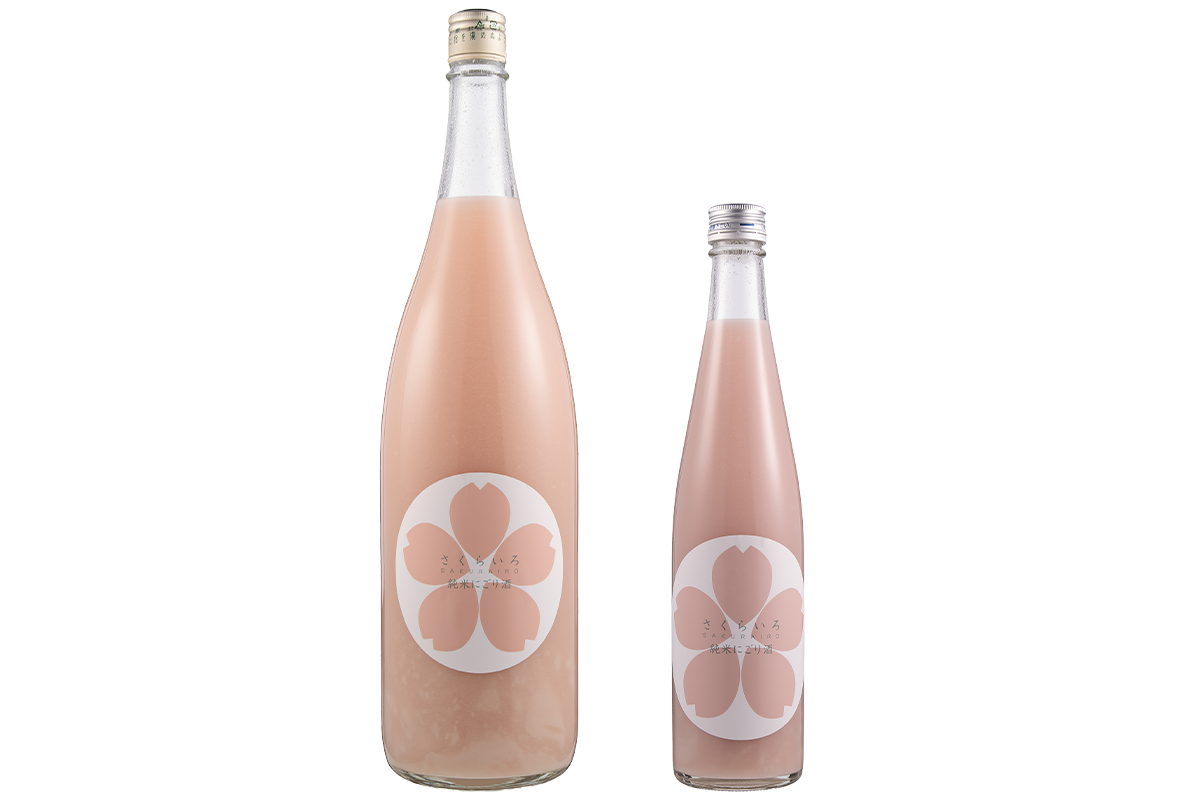
A nigorizake with a charming, natural cherry-blossom pink color, created naturally by the special yeast used.
| Rice polished to | 70% |
|---|---|
| Alcohol content | 10% |
| Sizes | 1.8l (by order), 720ml |
| Availability | Spring |
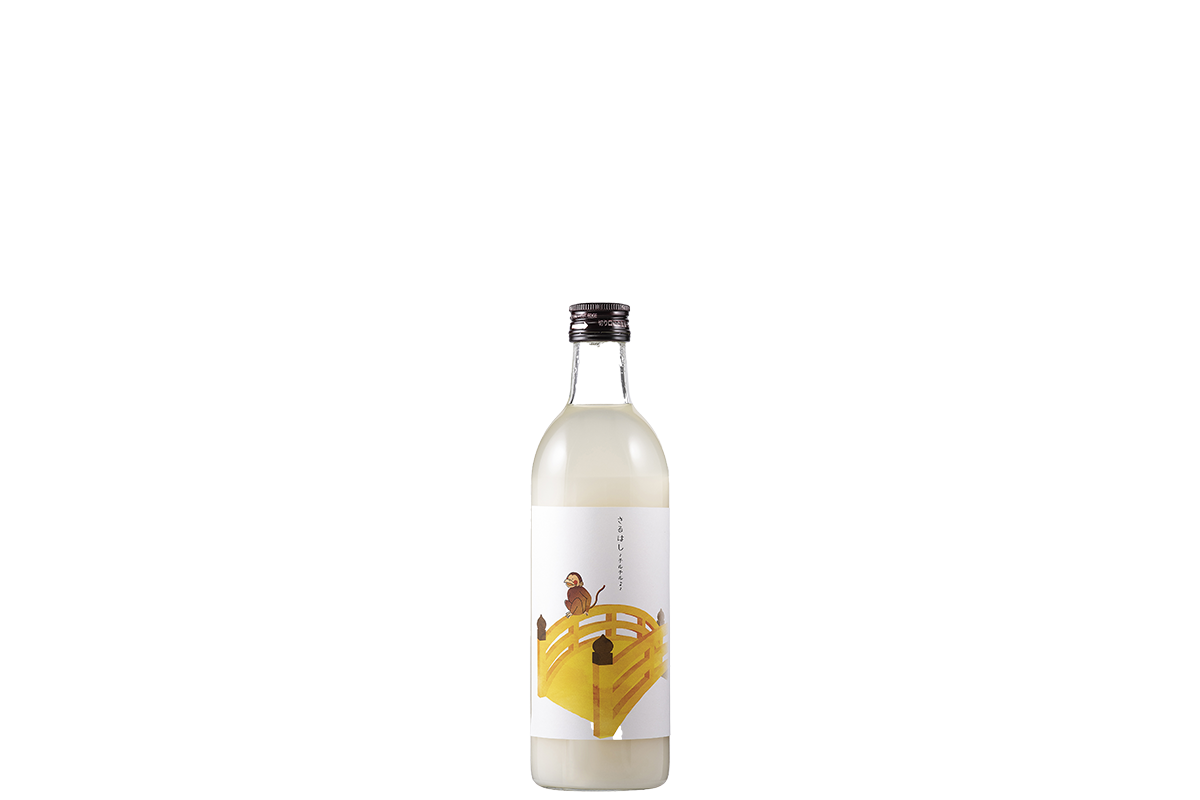
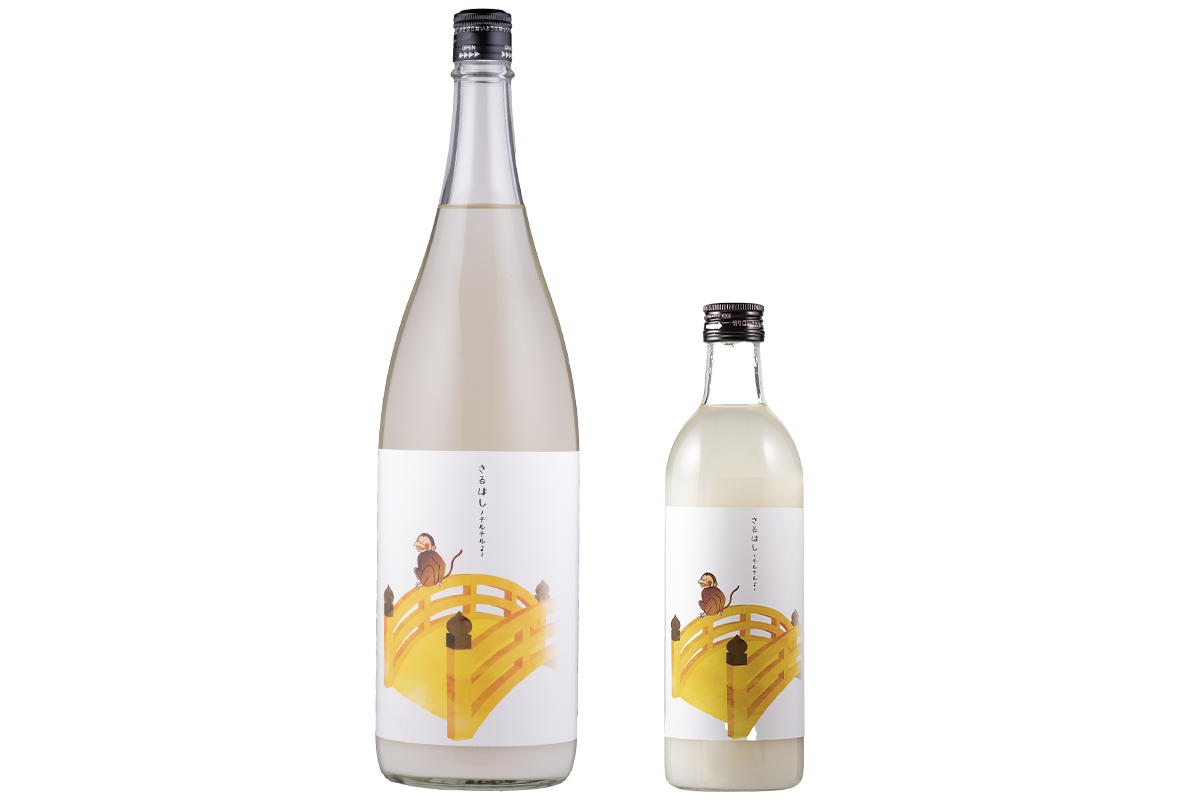
A finely-textured, low-alcohol nigorizaké, named for the Brewery’s neighborhood (Saruhashi, or “Monkey Bridge”). A moderate sweetness, and a flavor somewhat like a fermented milk beverage.
| Rice polished to | 65% |
|---|---|
| Alcohol content | 5% |
| Sizes | 1.8l (by order), 500ml |
| Availability | Limited; please contact us |
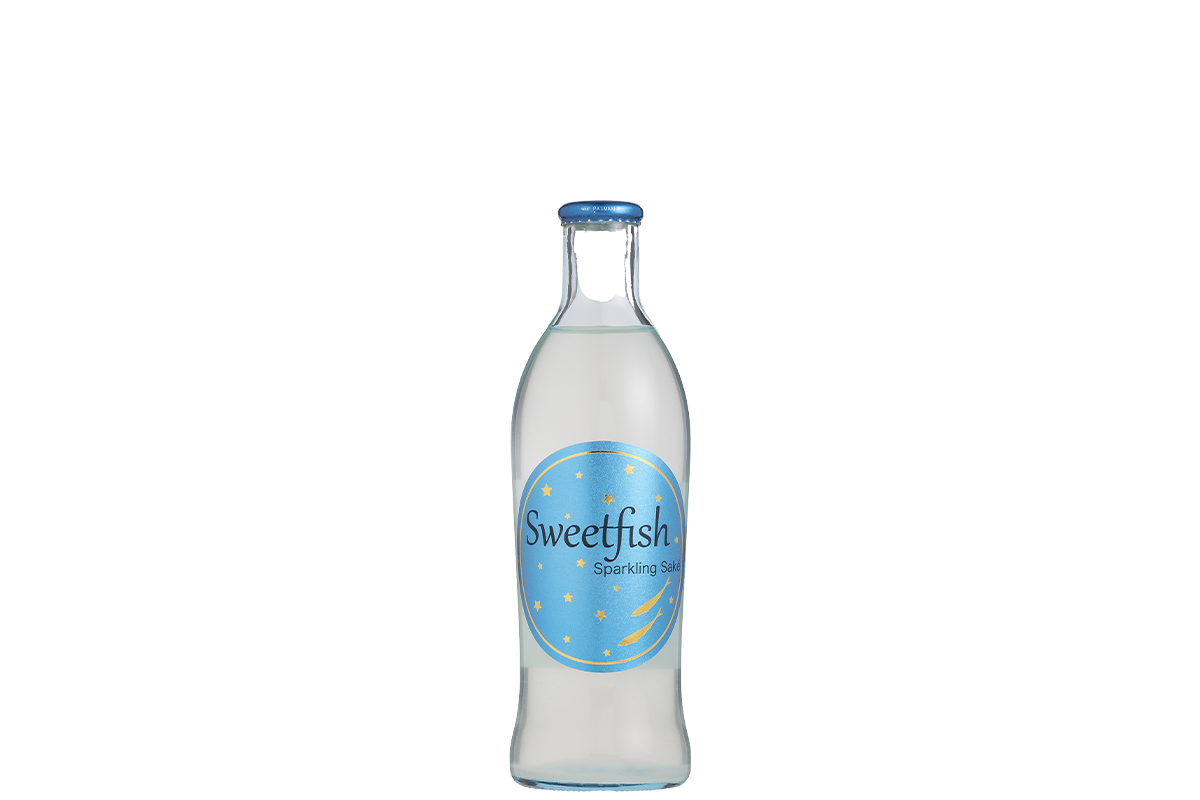
A refreshing, light flavor with subtle sweetness and a tart touch. The fine bubbles are the result of secondary fermentation.
| Rice polished to | 65% |
|---|---|
| Alcohol content | 6% |
| Sizes | 240ml |
| Availability | Year-round |
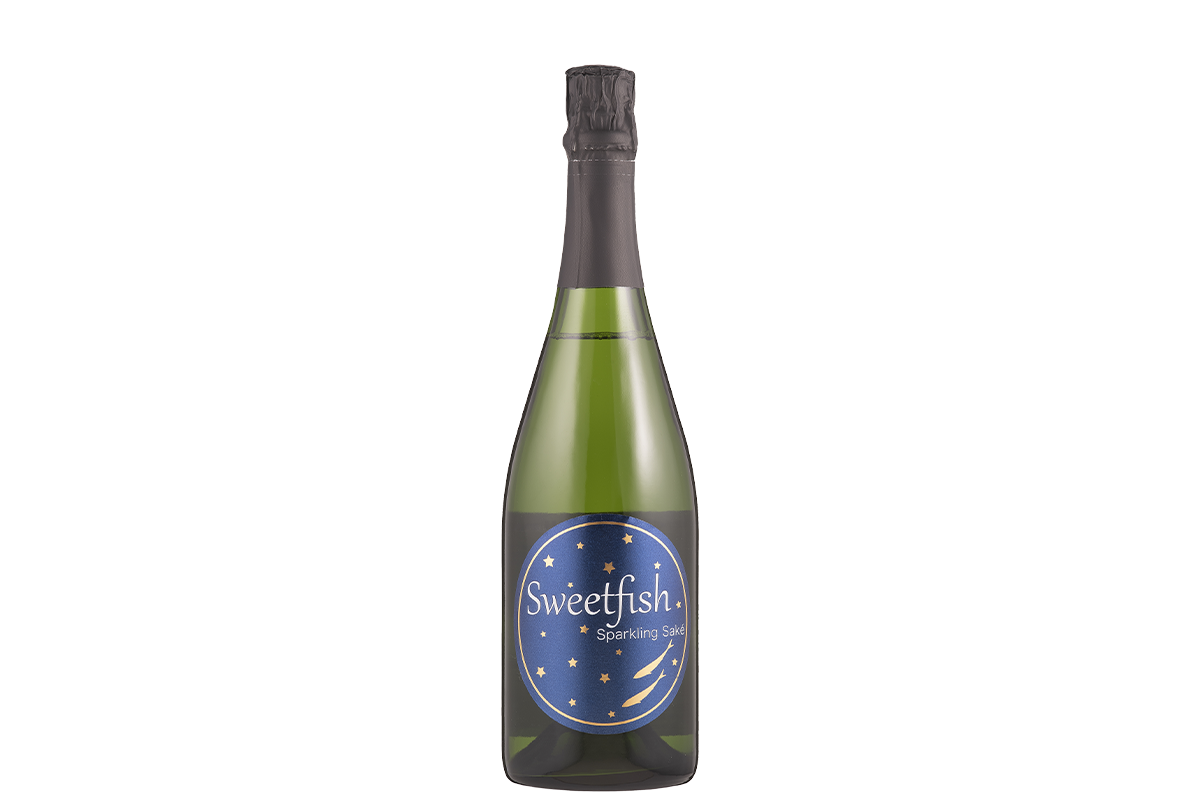
The fine bubbles that are characteristic of Sweetfish are created by the traditional method used to make Champagne. Refreshing and light.
| Rice polished to | 65% |
|---|---|
| Alcohol content | 8% |
| Sizes | 500ml |
| Availability | Year-round |
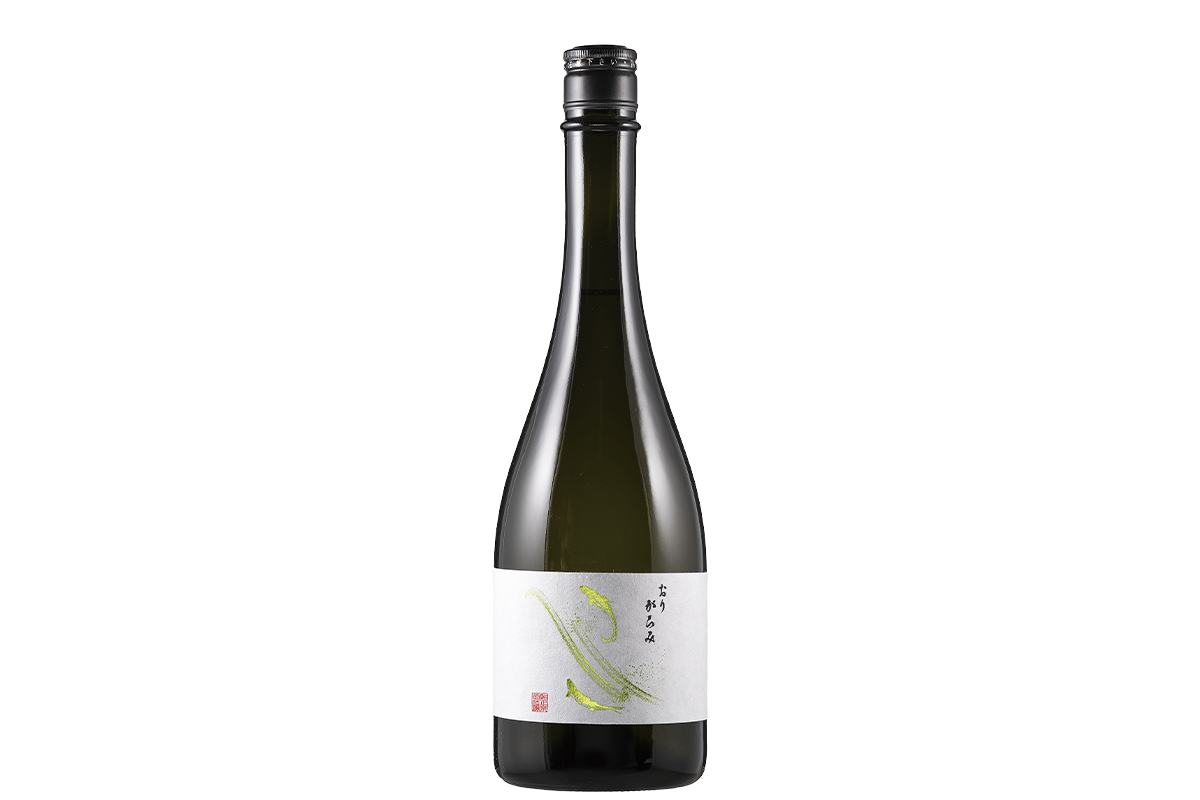
A sweet, elegant, light saké with a touch of tartness—low alcohol, but with a deep, dessert-wine-like flavor.
| Rice polished to | 65% |
|---|---|
| Alcohol content | 8% |
| Sizes | 720ml |
| Availability | - |

A refreshing, light flavor with subtle sweetness and a tart touch. The fine bubbles are the result of secondary fermentation.
| Rice polished to | 65% |
|---|---|
| Alcohol content | 6% |
| Sizes | 240ml |
| Availability | Year-round |

The fine bubbles that are characteristic of Sweetfish are created by the traditional method used to make Champagne. Refreshing and light.
| Rice polished to | 65% |
|---|---|
| Alcohol content | 8% |
| Sizes | 500ml |
| Availability | Year-round |


A nigorizake with a charming, natural cherry-blossom pink color, created naturally by the special yeast used.
| Rice polished to | 70% |
|---|---|
| Alcohol content | 10% |
| Sizes | 1.8l (by order), 720ml |
| Availability | Spring |


A finely-textured, low-alcohol nigorizaké, named for the Brewery’s neighborhood (Saruhashi, or “Monkey Bridge”). A moderate sweetness, and a flavor somewhat like a fermented milk beverage.
| Rice polished to | 65% |
|---|---|
| Alcohol content | 5% |
| Sizes | 1.8l (by order), 500ml |
| Availability | Limited; please contact us |
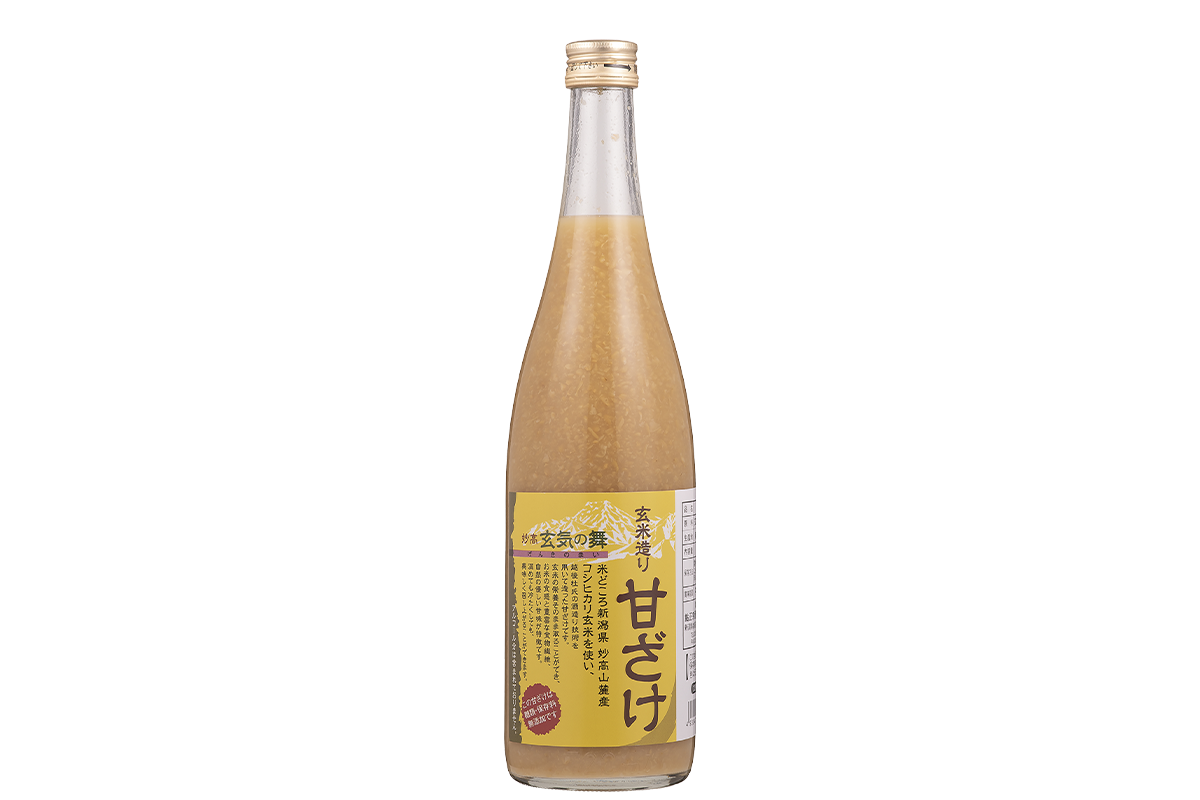
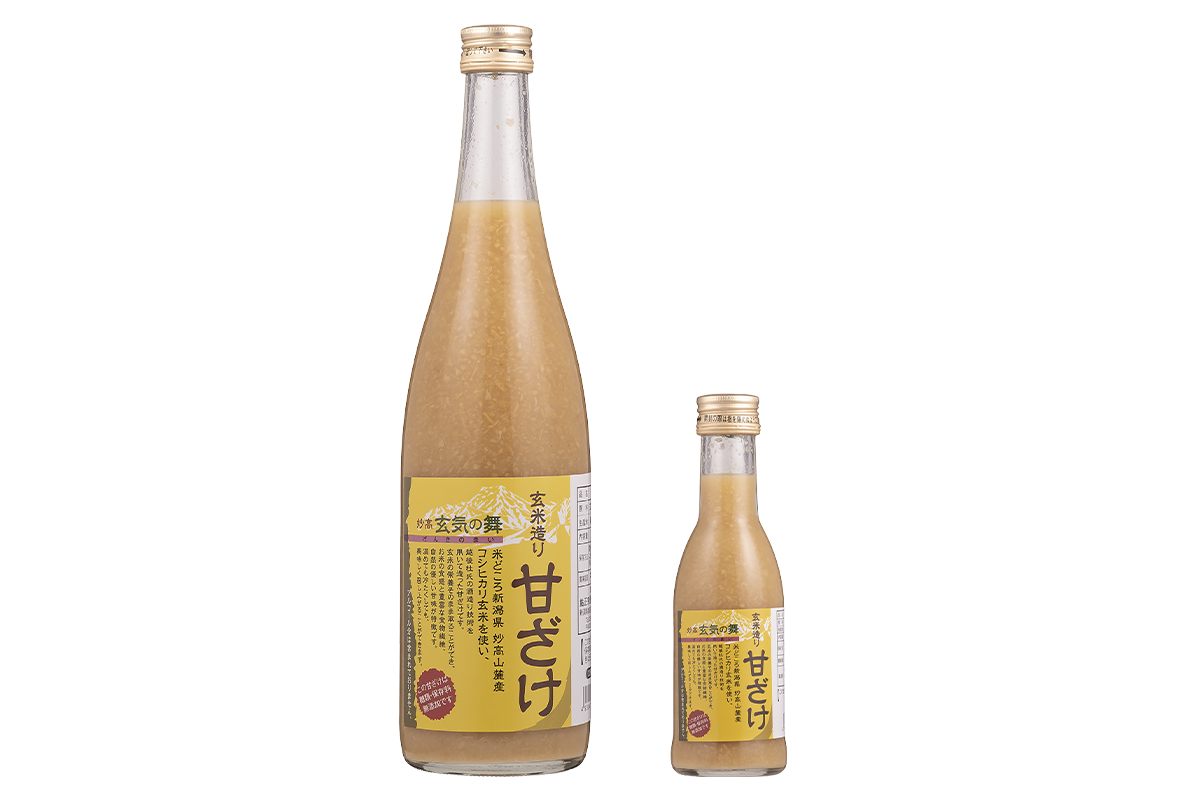
Made with genmai—brown, or unpolished Koshihikari rice—from the foothills of Mt. Myoko, right here in Niigata. An amazake that provides the nutritional benefits of genmai.Made with genmai—brown, or unpolished Koshihikari rice—from the foothills of Mt. Myoko, right here in Niigata. An amazake that provides the nutritional benefits of genmai.
| Sizes | 720ml, 180ml |
|---|---|
| Availability | Year-round |
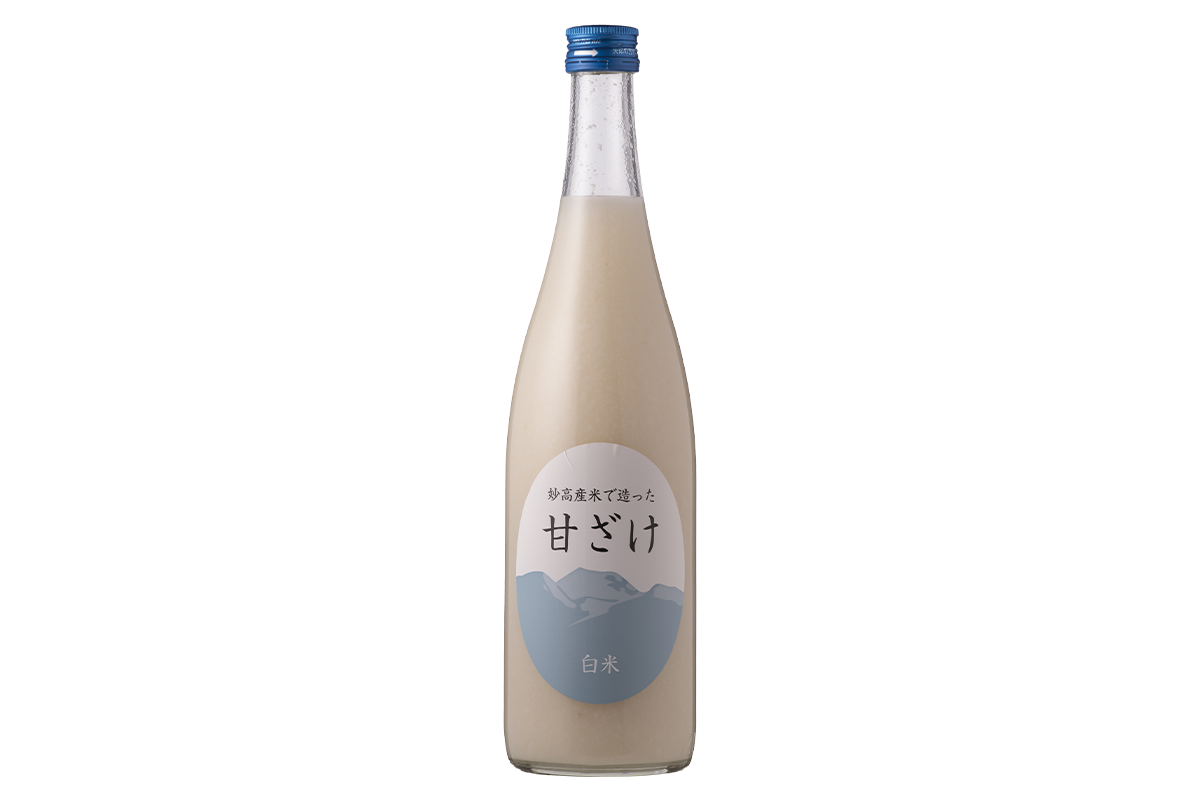
Made with top-grade Koshihikari rice from Myoko and the finest quality spring water. Provides a gently sweet finish.
| Sizes | 720ml |
|---|---|
| Availability | Summer only |
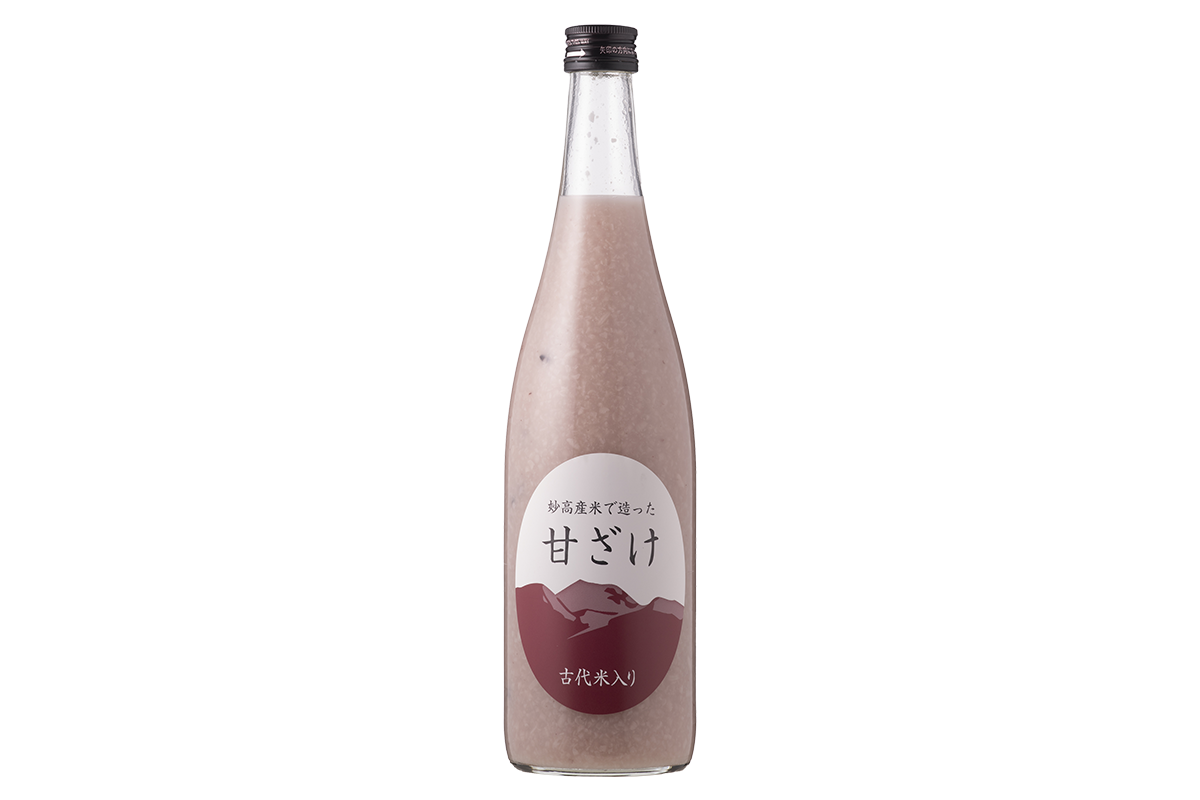
Made using Asamurasaki, an ancient variety of rice. It has a slightly grainy texture and gentle sweetness.
| Sizes | 720ml |
|---|---|
| Availability | Summer only |
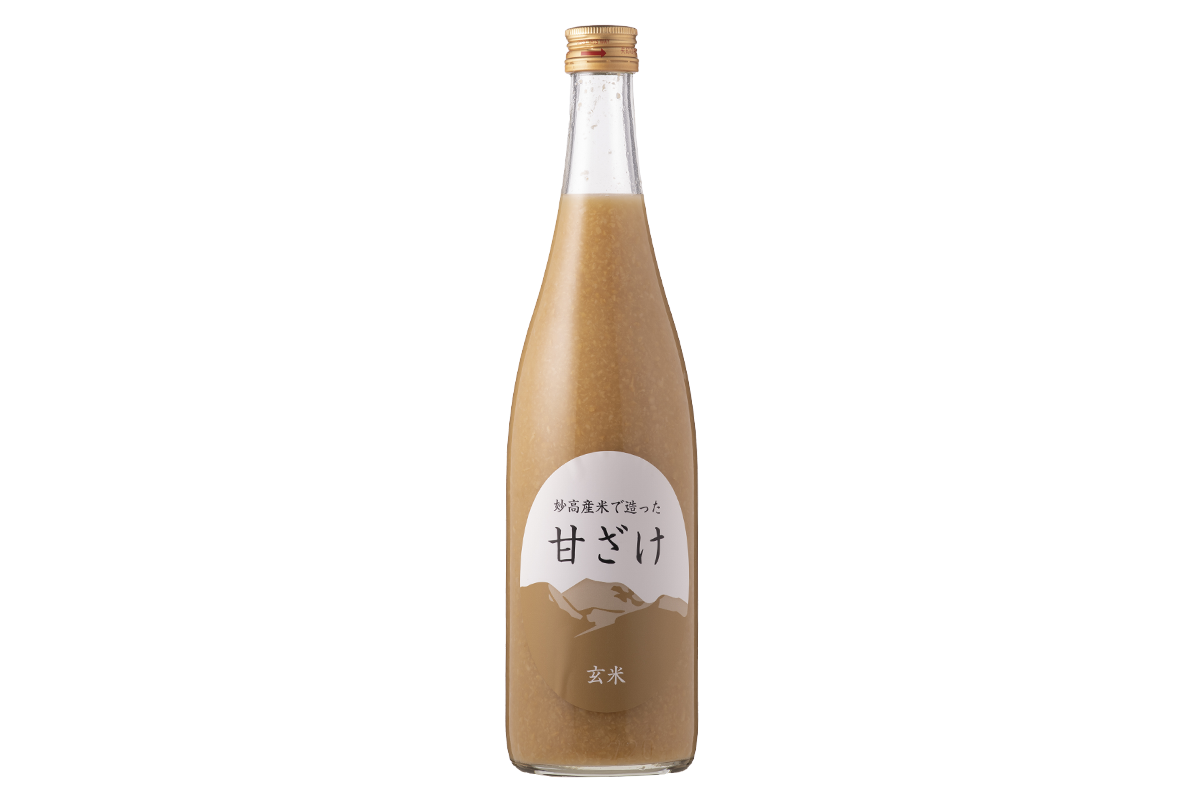
A very rice-y texture, rich with dietary fiber, this is a sweet amazake with the fragrance of new rice shoots.
| Sizes | 720ml |
|---|---|
| Availability | Summer only |
The varieties of saké
Here’s a quick look at the differences in the varieties of saké. There’s lots more to learn, but hopefully this information will help to get an idea of the things we brew. Remember, there’s no “best” style—find the one that you enjoy the most.
Daiginjo
Rice is highly polished—in some of our products, down to as little as 40% of the original rice kernel. This is done to remove the minerals and other materials found in the outer layers that can result in unwanted flavors and colors, while retaining more of the pure starch at the center. This is then brewed cold and long using special yeast and koji mold spores to create the highly fragrant and flavorful characteristics of a daiginjo.
Ginjo
Like daiginjo, the rice for ginjo is highly polished, down to 50% for our saké. All of our ginjo are also junmaishu—“pure rice,” with no added alcohol (which is common and traditional for ginjo as well as honjoshu). Ginjo is also brewed slowly in cold conditions, for a full-flavored, fragrant saké. And, like daiginjo, ginjo is almost always drunk cold to really enjoy the distinctive fragrance and flavor (which can be a bit too much when warmed!).
Namazaké
Unpasteurized saké, with a fresh and fruity flavor. Some can have a slight natural carbonation, resulting in a delightfully tingly feeling on the tongue.
Junmai
Pure rice saké—the ingredients are rice, water, yeast, koji and nothing else. Many varieties of saké use added brewer’s alcohol, a traditional method not meant to increase the alcohol content but to balance and smooth the flavor. Junmaishu often has a pleasant rice flavor unlike other varieties that many prefer.
Genshu
Saké “straight from the tank,” without added water or brewer’s alcohol. Water is often added to saké to bring the alcohol concentration down to about 14%, but our genshu will be at 17%—a solid, straightforward flavor and fragrance that, again, many prefer. You may also sense a very mild effervescence on your tongue with genshu.
Nigorizaké
Often called “unfiltered,” it’s perhaps more accurately called “cloudy,” as it has been lightly filtered but retains many rice particles in suspension. This gives it a natural sweetness and a smooth, creamy texture. Because of the particles, it needs to be gently mixed before drinking by inverting the bottle several times.
Honjozo
This is the brew beloved by local people, our “regular” sake (think “table wine,” without any derogatory meaning). The soft water spring that emerges within the brewery is one of the reasons for the soft, elegant feel of our honjozo; the flavor is mellow and rich.
Tokubetsu Honjozo
Similar to honjozo in production, but with a more highly polished rice. It also has a very soft, smooth mouthfeel, and a rich, delicious flavor.
Sparkling saké
Many breweries now feature sparkling saké, but our Sweetfish features only natural carbonation, made possible by the same traditional method used in fine champagne making. This is a delightfully sweet, low-alcohol saké that makes a great aperitif.